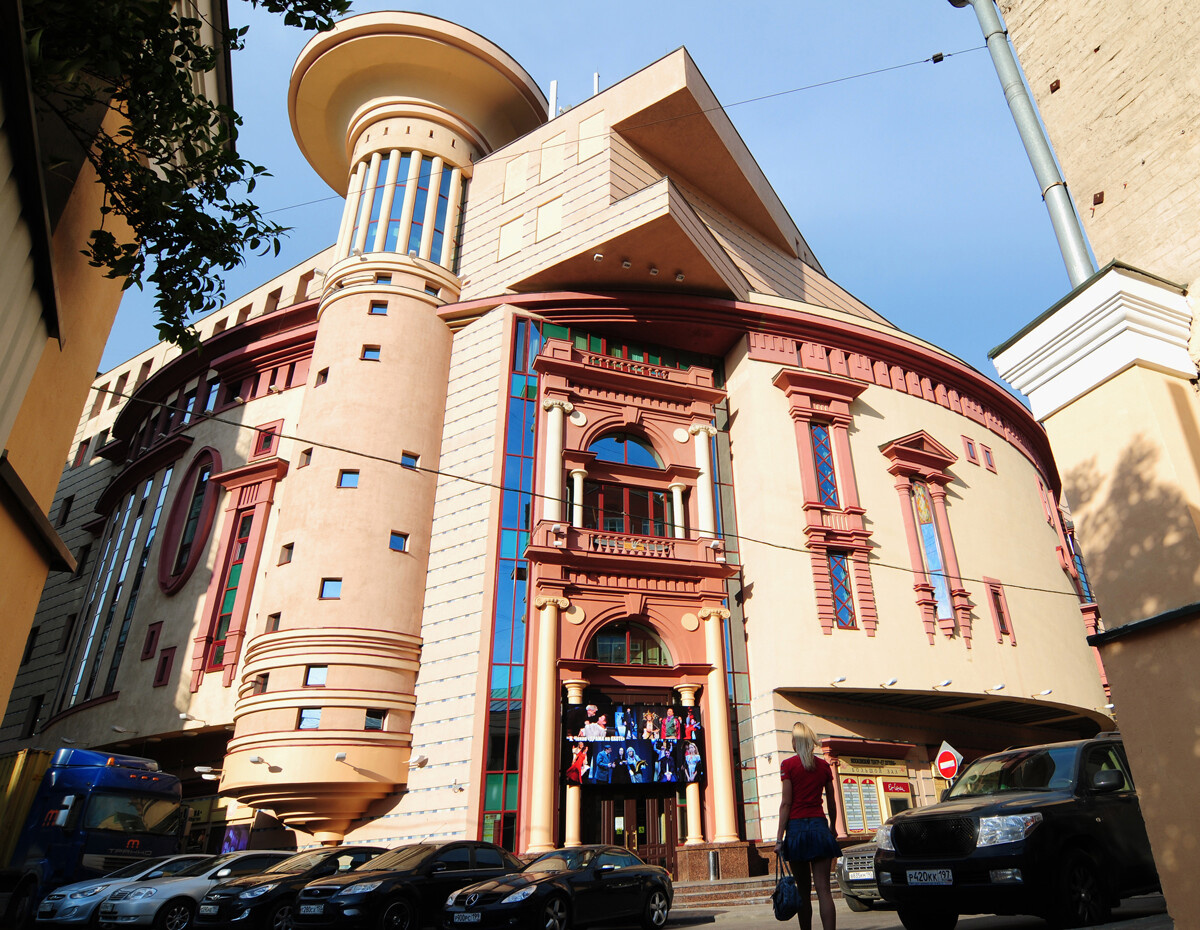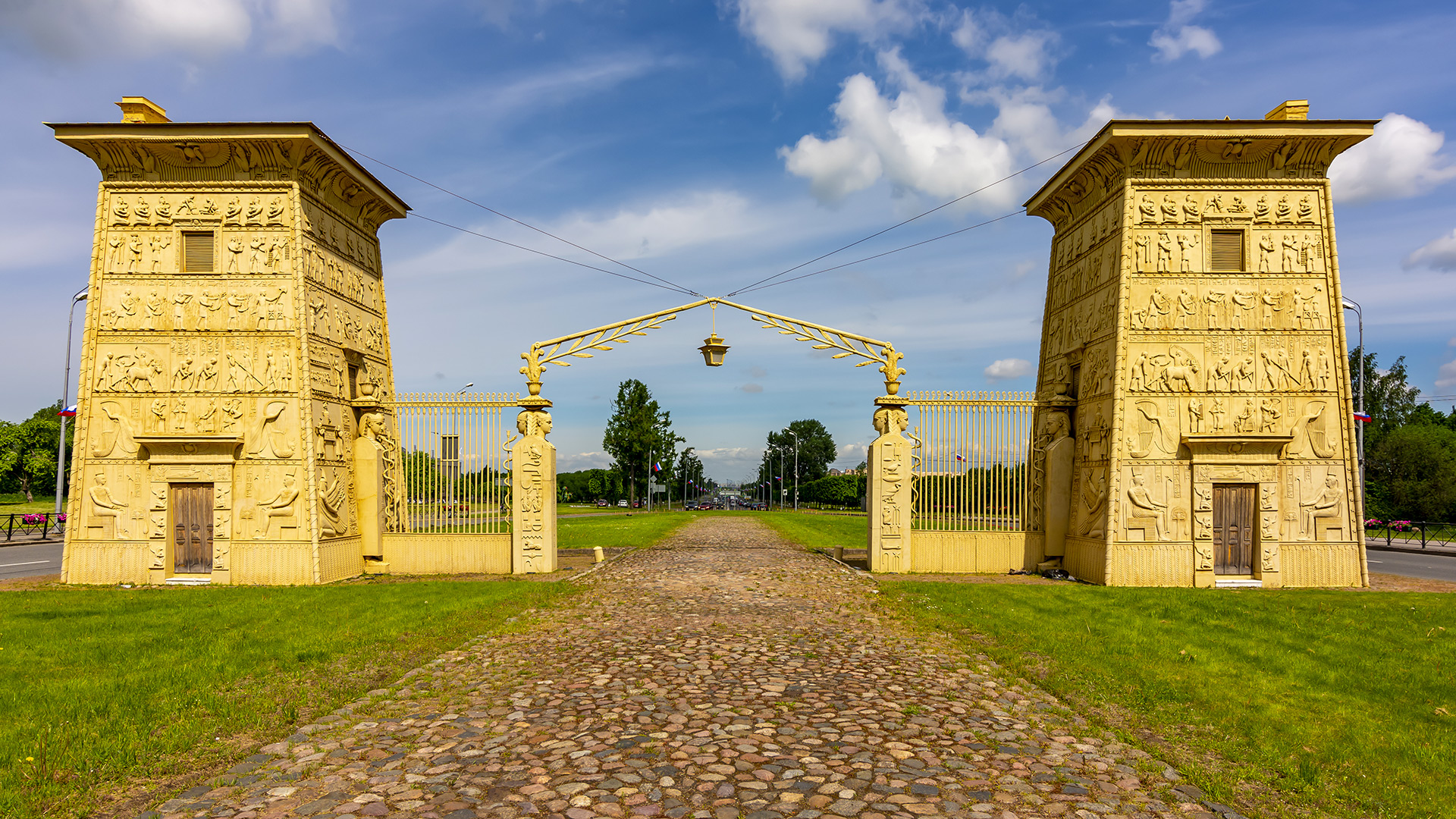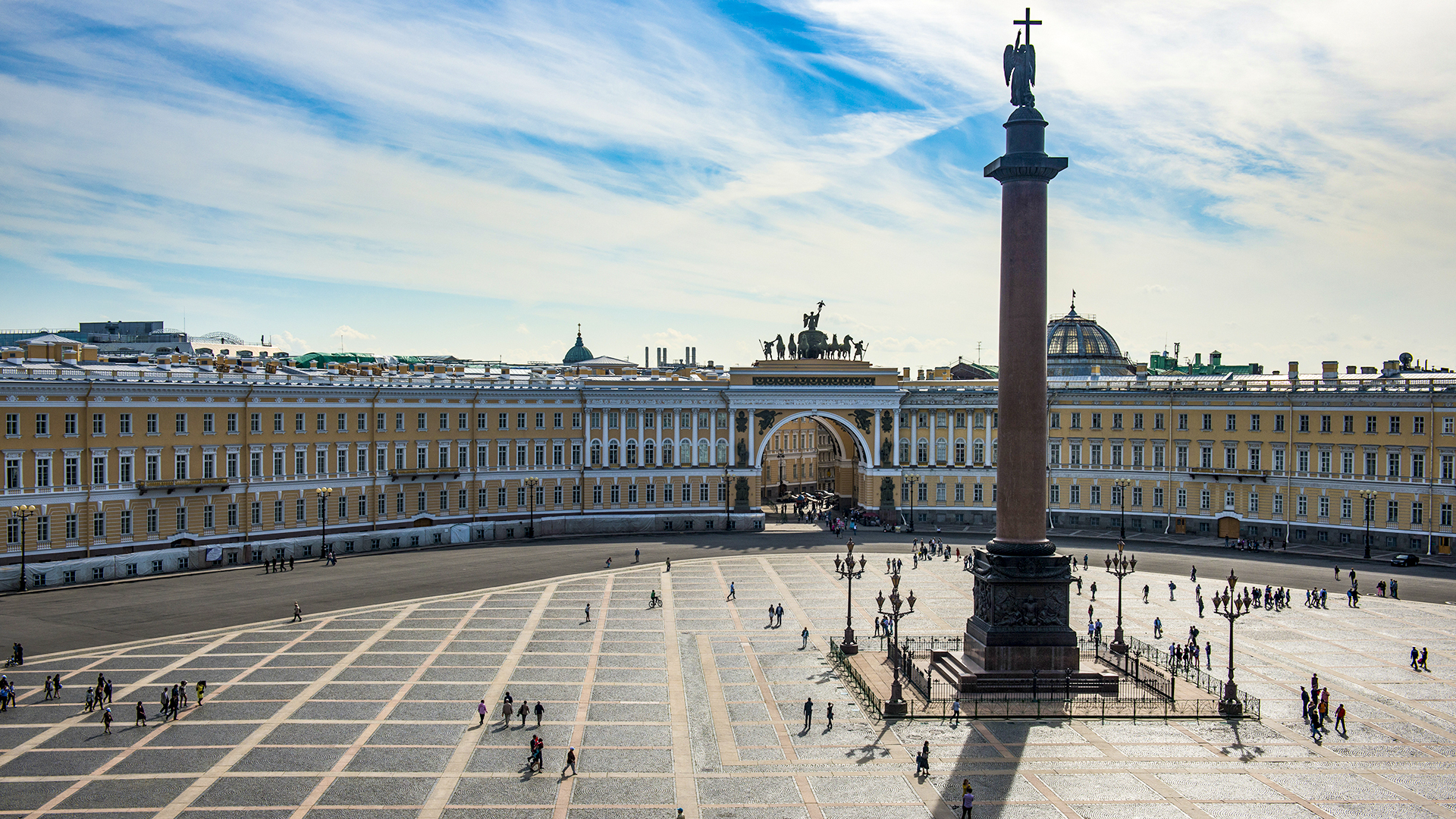
10 architectural styles you can find in Moscow (PHOTOS)
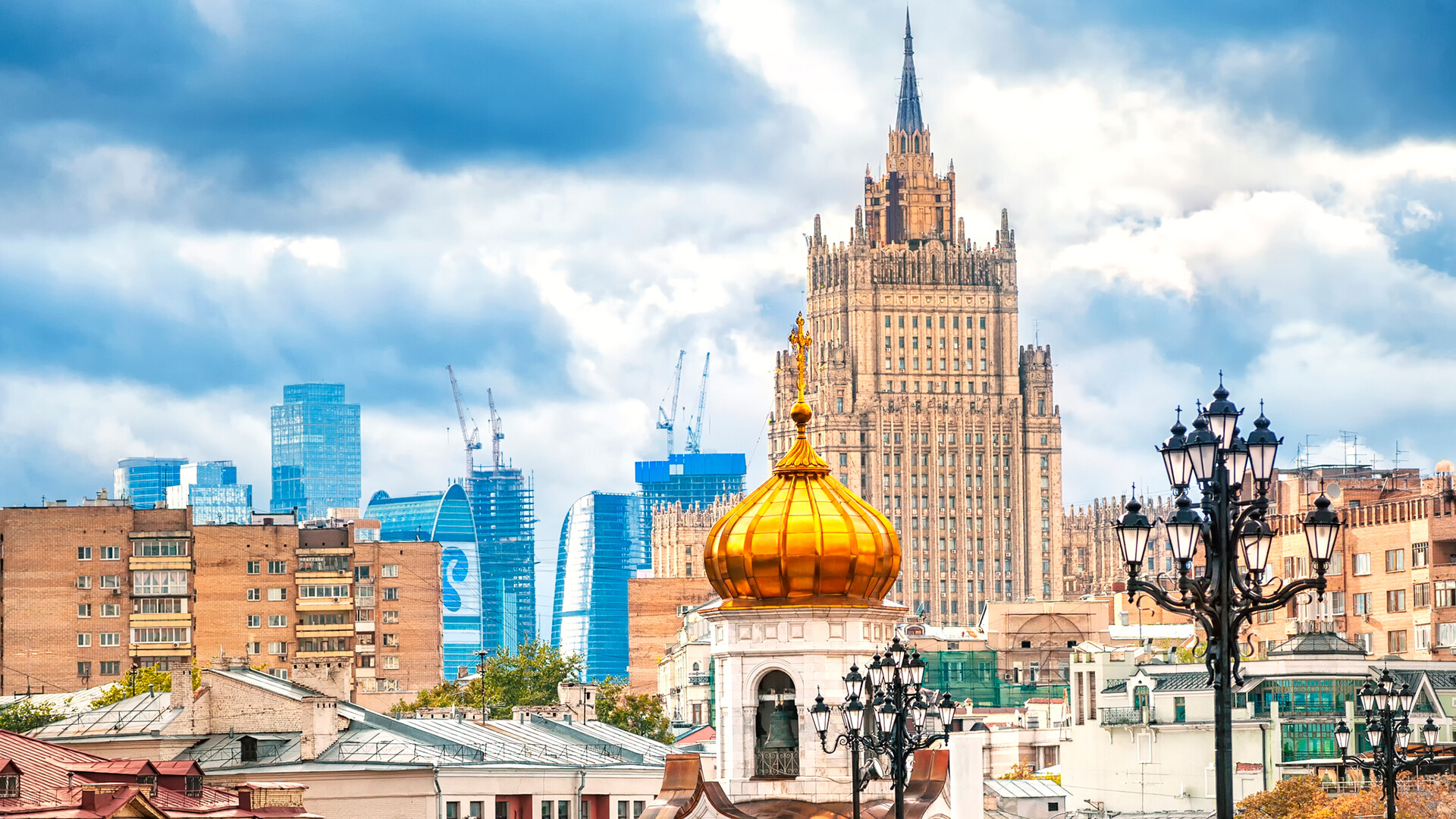
1) Medieval Russian architecture
Moscow’s oldest surviving buildings are the famous St. Basil’s Cathedral, the Kremlin cathedrals, and the cathedral of the 15th century Andronikov Monastery that still has original fragments of frescoes by renowned icon painter Andrei Rublev. Pre-Petrine Russia also left us several stone chamber buildings (including the chambers of the boyars Romanov of the 16th-17th centuries and the Old English Yard of the 15th-17th centuries).
The Kremlin cathedrals (15th century)
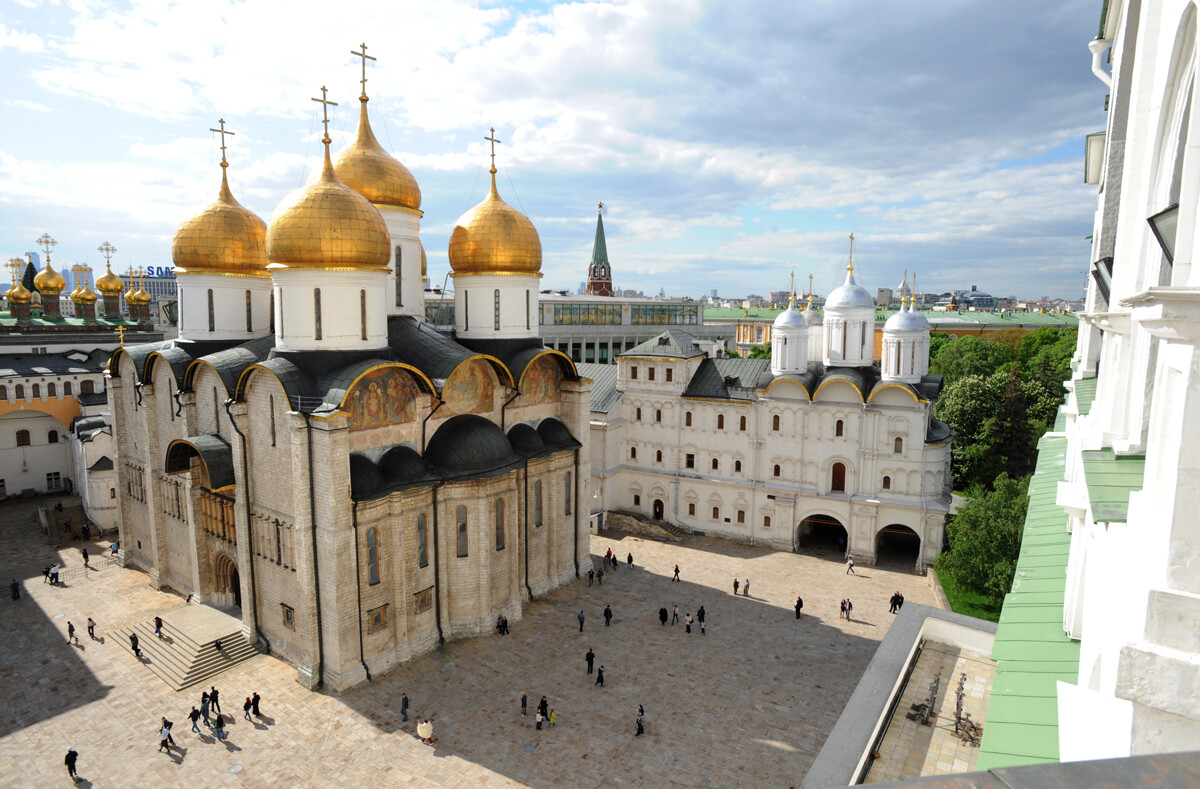
The chambers of the Romanov boyars (end of the 16th century – early 17th century)
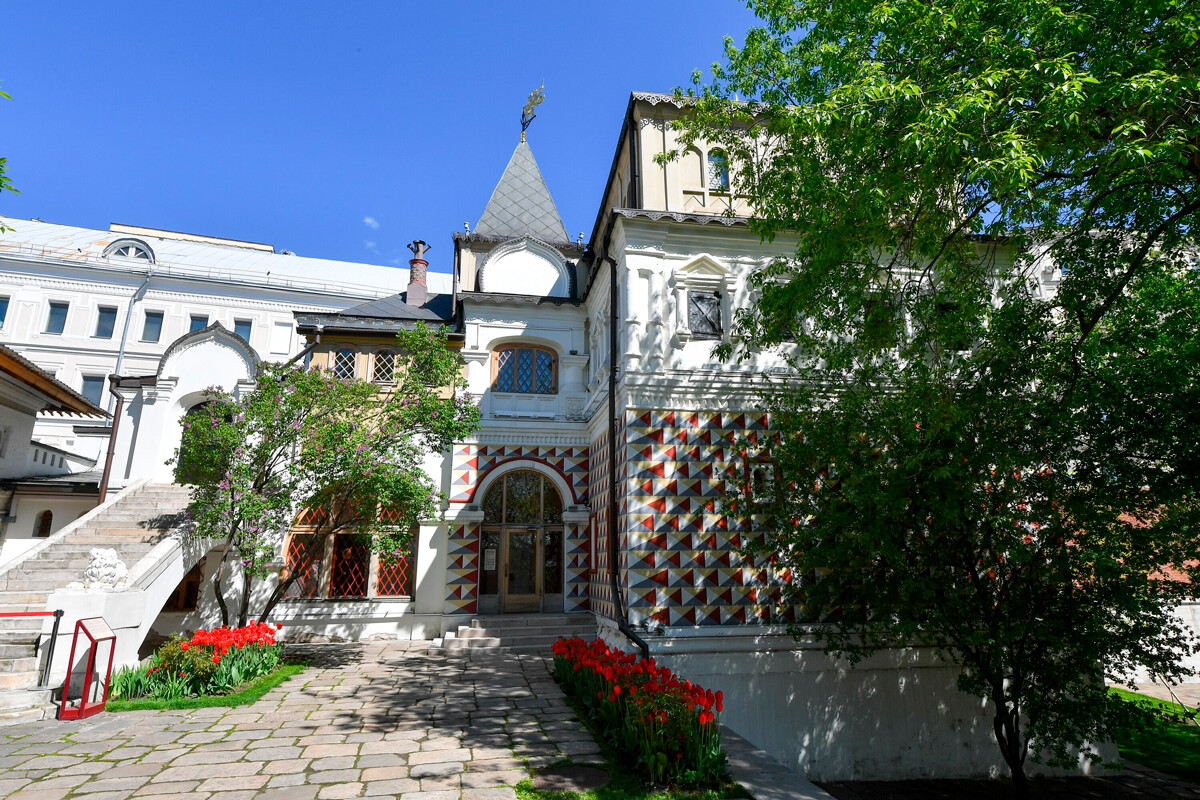
The Savior Cathedral of Andronikov Monastery (15th century)
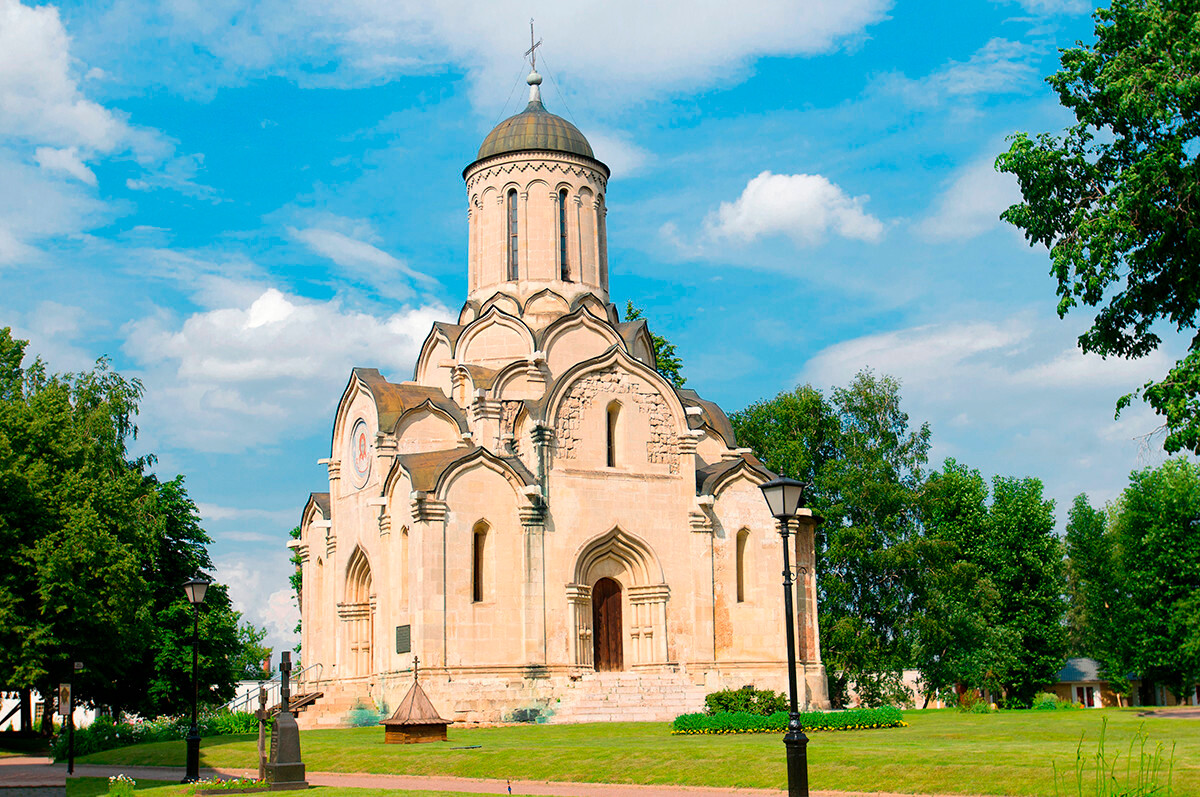
2) Baroque style
With the ascension of Peter the Great to the Russian throne, a strong Western influence found its way into Russia, including in architecture. The European Baroque style merged with the Russian Uzorochye style, giving birth to the unique style of the Moscow Baroque, which today can be seen in many churches in Moscow and its outskirts, where noble families built churches for themselves.
The Church of the Intercession at Fili (1690-1694)
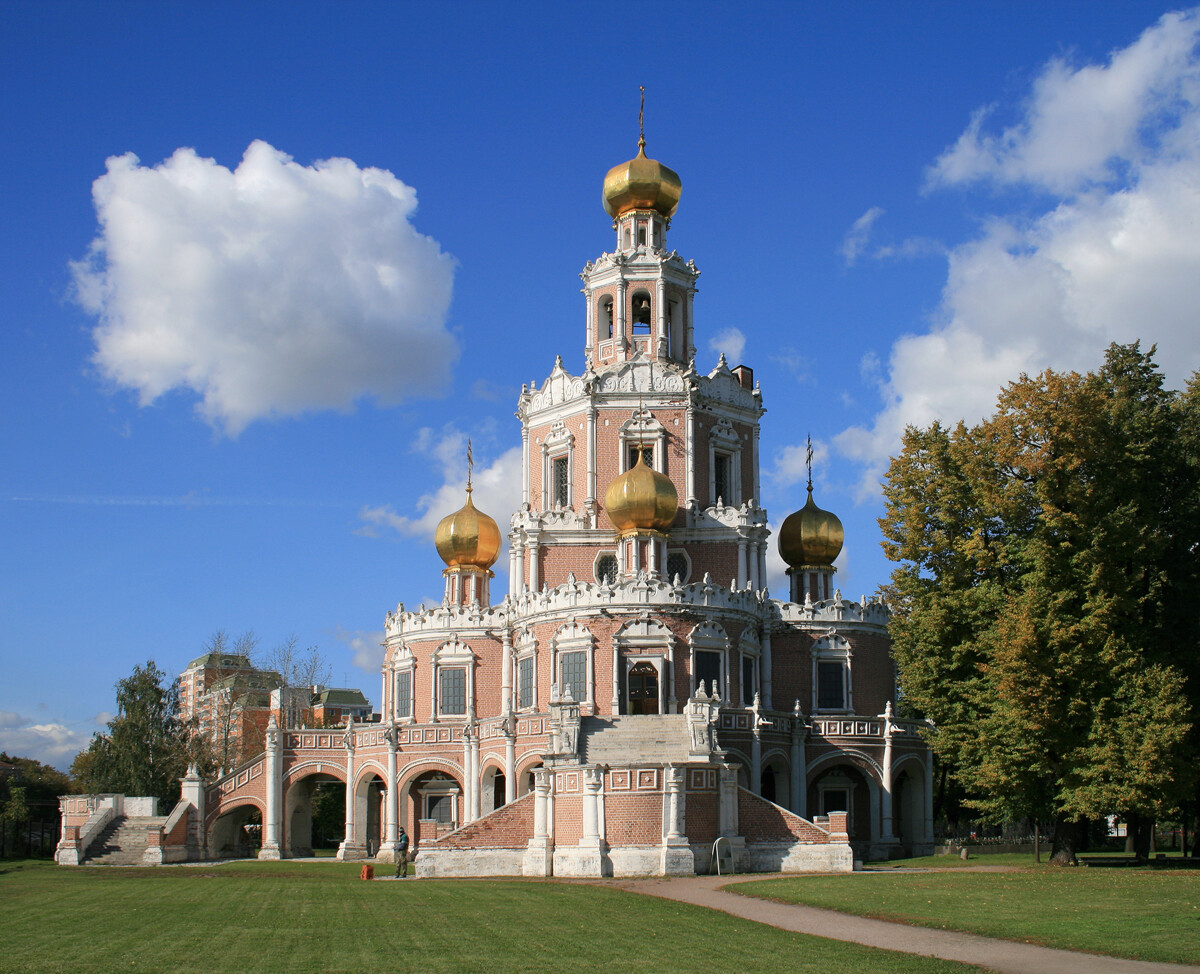
The architectural ensemble of Novodevichy Convent (late 18th century)
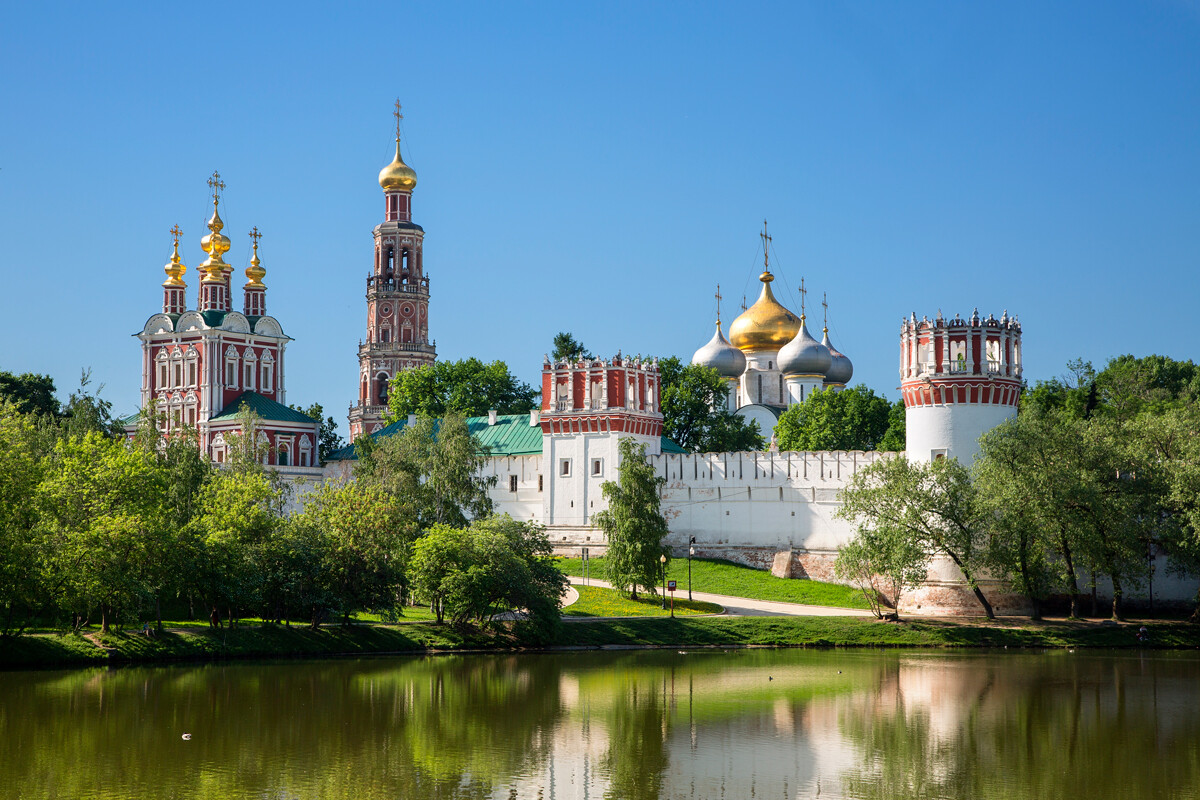
The Church of the Trinity at Troitse-Lykovo (1698-1703)
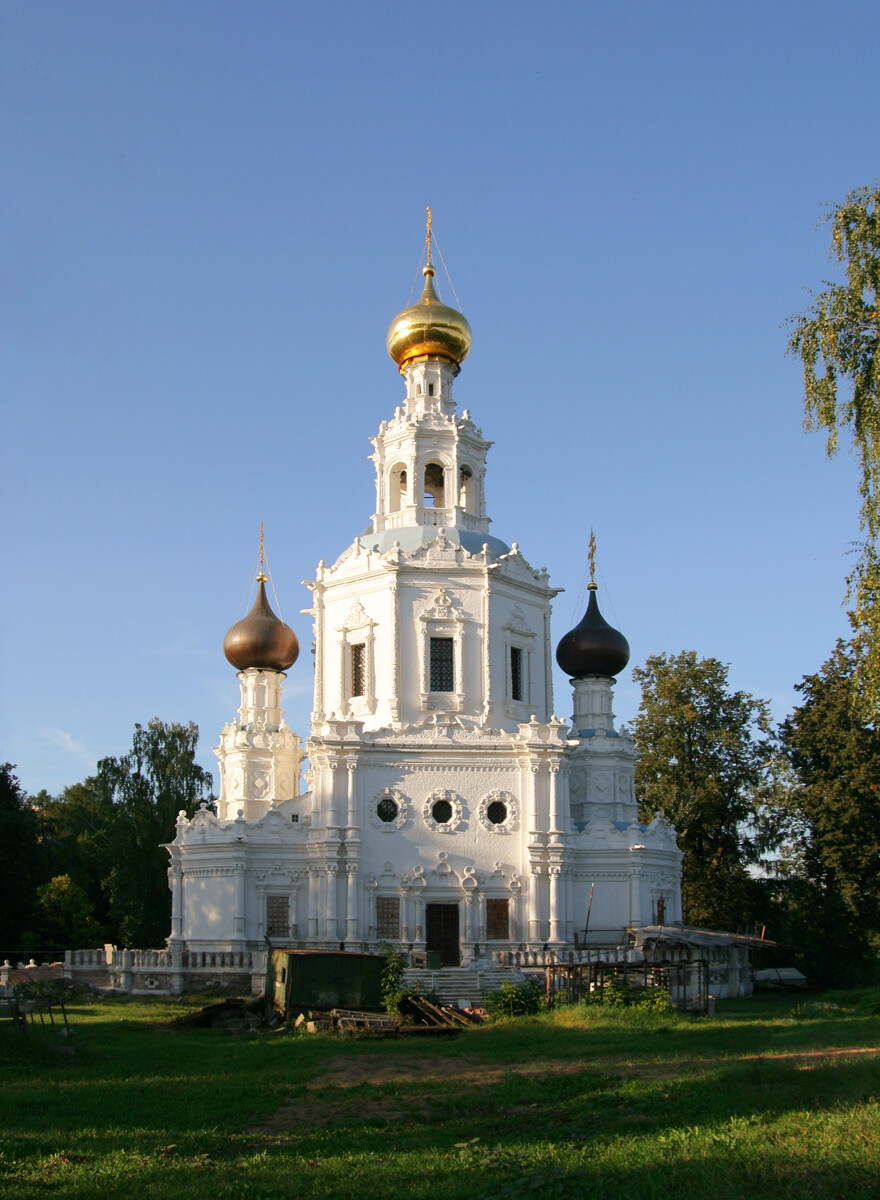
3) Gothic architecture
After exhaustion set in with the Baroque style, since it’s marked by excessive decorative elements, architects in Russia began experimenting with the Gothic style. Lancet arches and skyward spires were initially foreign to the Russian eye, but in the end they came into fashion and found their way even into Orthodox church architecture.
Tsaritsyno (18th century)
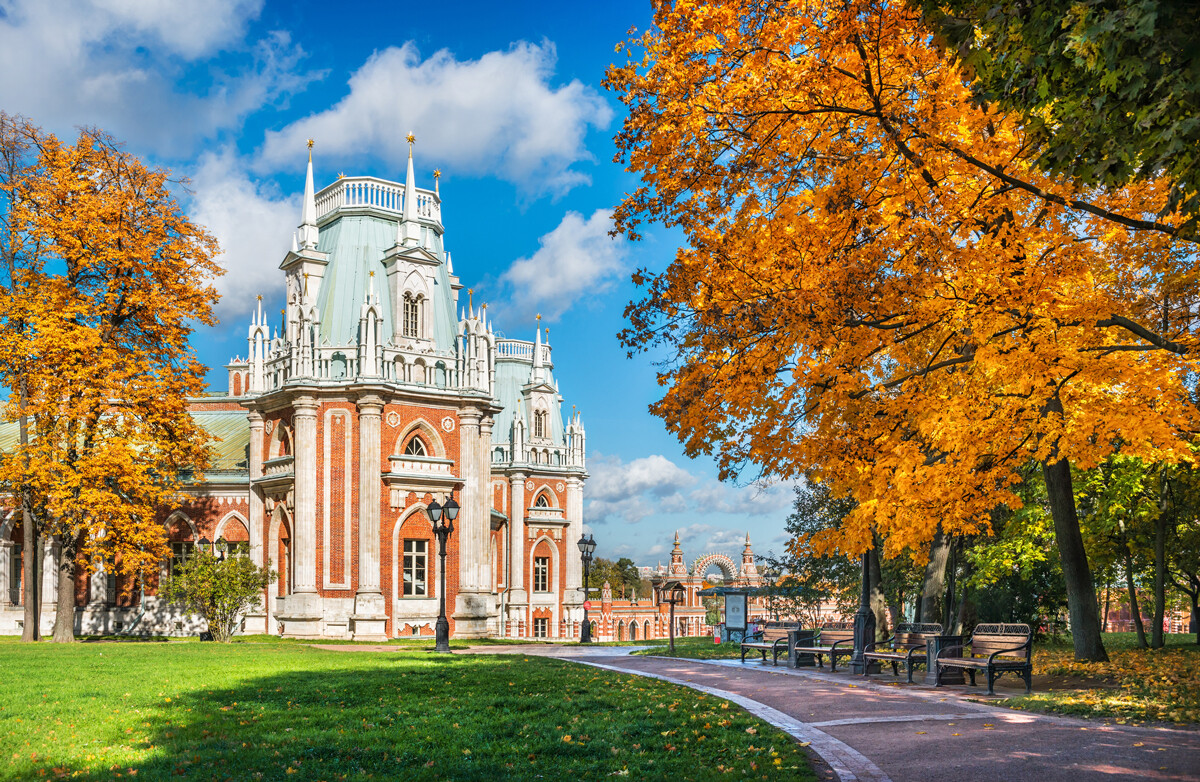
Elektrozavod (1928)
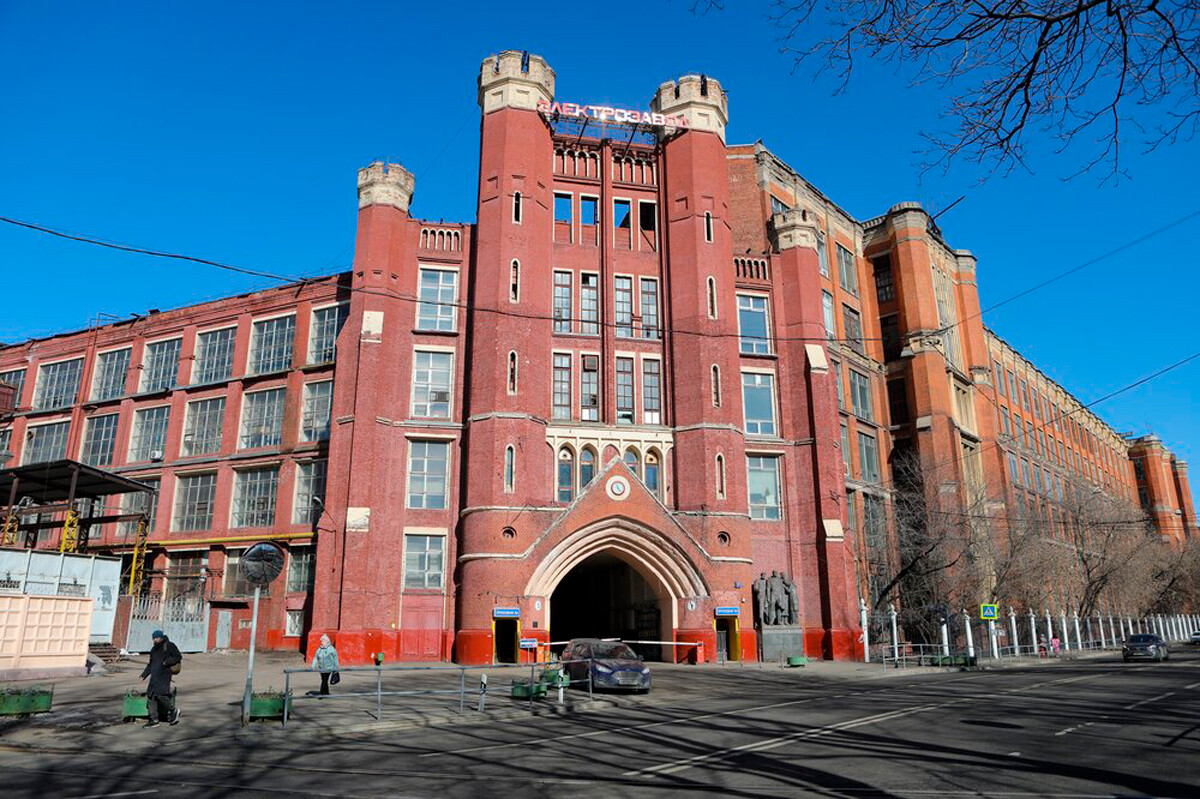
The Cathedral of the Immaculate Conception of the Holy Virgin Mary (1901-1911)
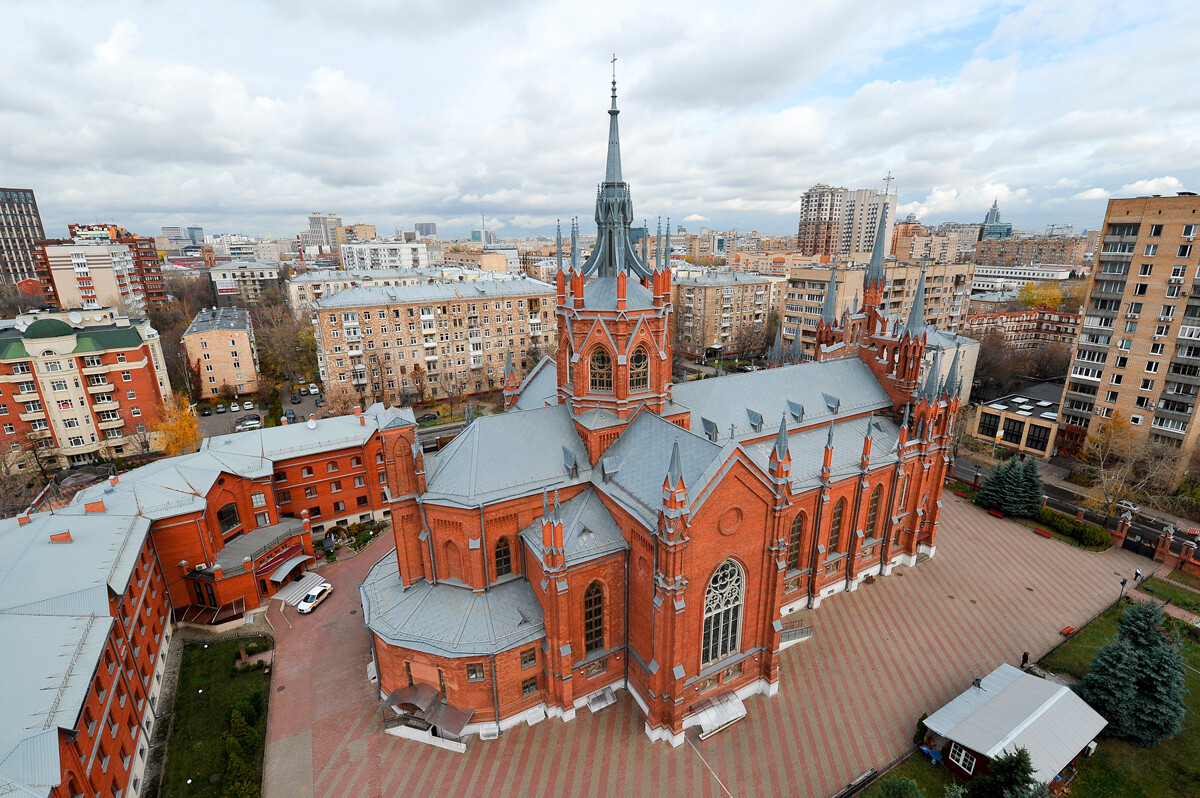
The mansion of Zinaida Morozova (1893-1898)
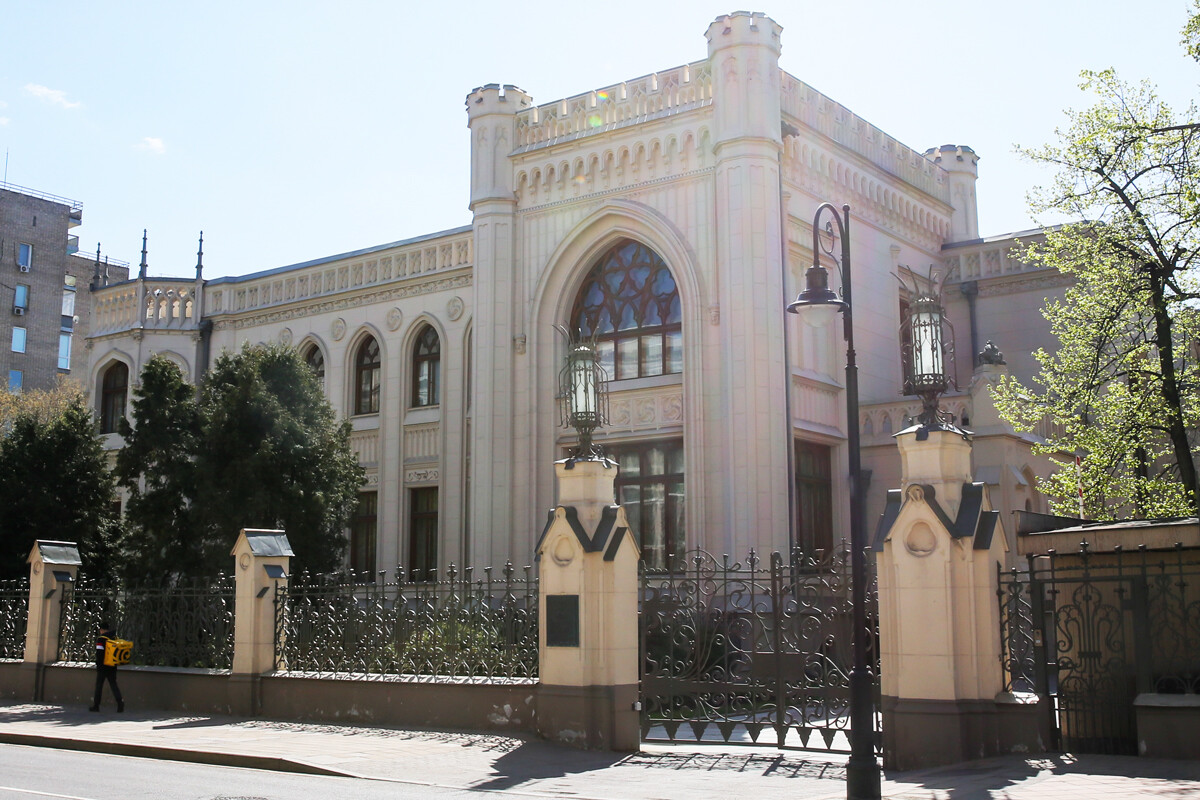
4) The (Neo)-Russian style
After many decades of Russia’s love for all things European, finally under Emperor Alexander III at the end of the 19th century it became fashionable to look to the country’s native roots for inspiration. One of the most vivid examples of the Neo-Russian style is the Church of the Savior on Spilled Blood in St. Petersburg, which is reminiscent of St. Basil’s Cathedral in Moscow. The emperor personally approved the architectural design of this cathedral. In Moscow, many houses were built that looked more like terems. On Red Square, a new, stylized building to exhibit the precious national treasures of the State Historical Museum was erected to join the ensemble of medieval buildings. Read more about the Russian style here.
The State Historical Museum (1875-1883)
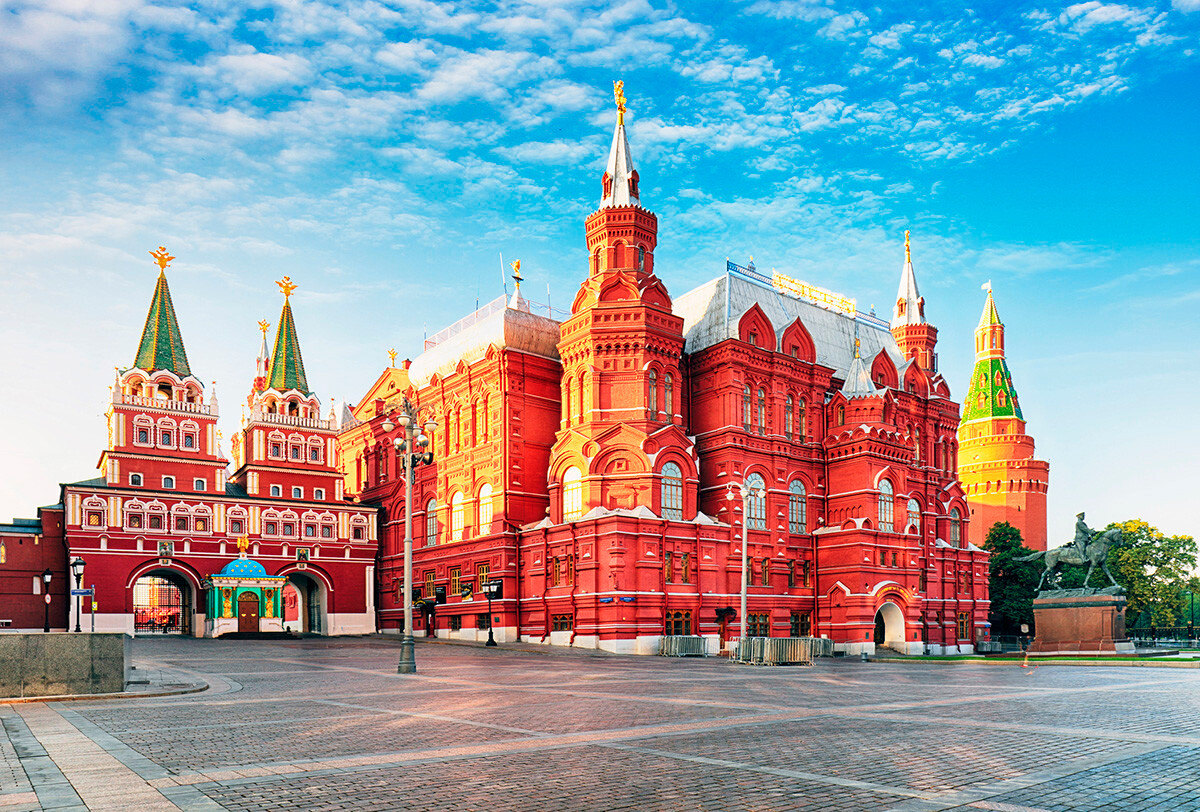
The house of the merchant Igumnov (1888-1895)
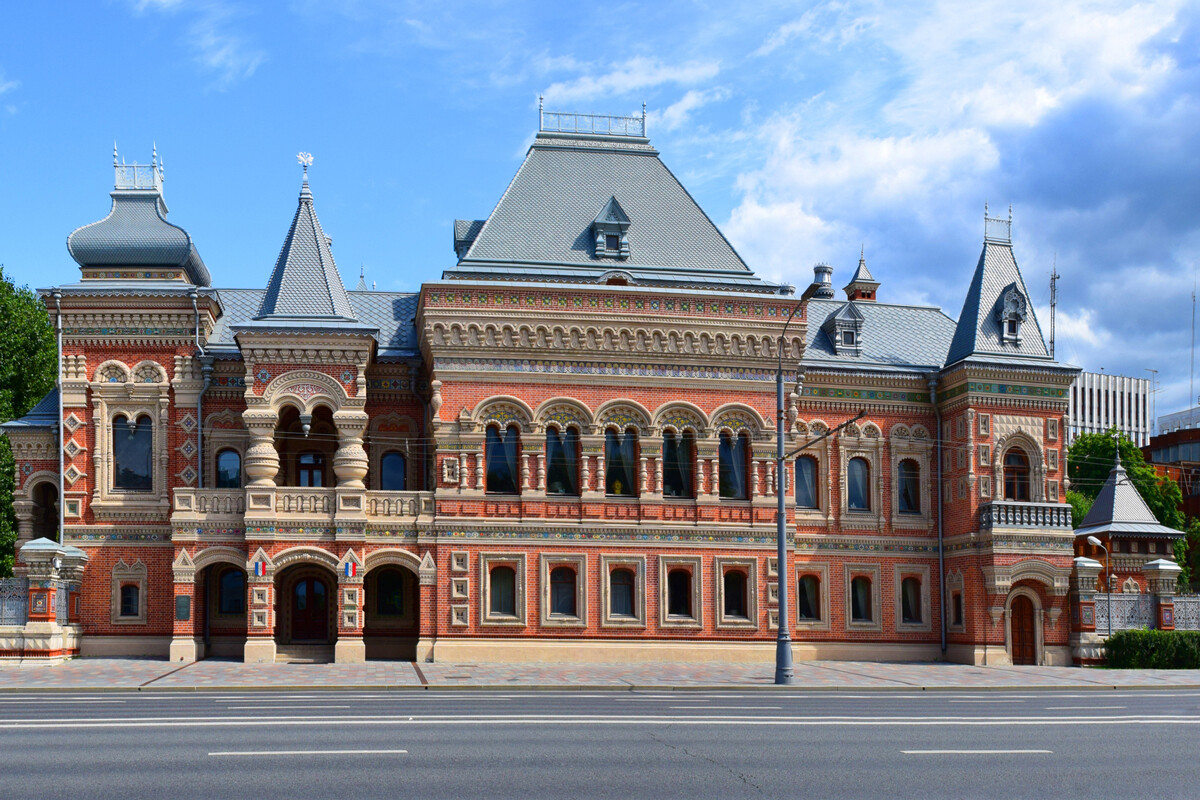
The Shchukin mansion, now the K. A. Timiryazev’s Biological Museum (1892-1915)
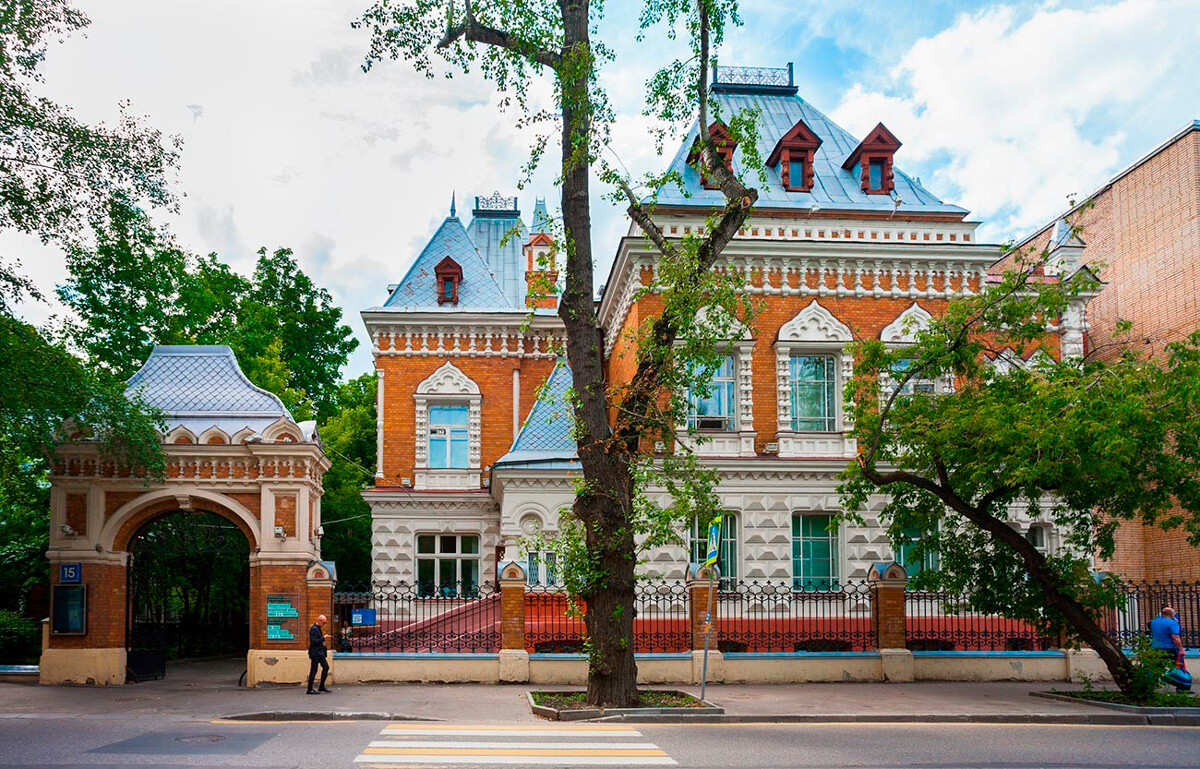
5) Art Nouveau
Asymmetric compositions, floral ornaments, mosaic panels, and an appeal to Russia’s past – all of this was characteristic of the development of the Russian Art Nouveau, one of the most unusual architectural styles that was popular at the end of the 19th and early 20th centuries. Wealthy merchants and art connoisseurs were inspired to build mansions for themselves in the Art Nouveau style; one of the main architects of the Art Nouveau in Moscow was Fyodor Schechtel, who built the famous Ryabushinsky Mansion and the Yaroslavsky railway station.
Ryabushinsky Mansion (1900-1903)
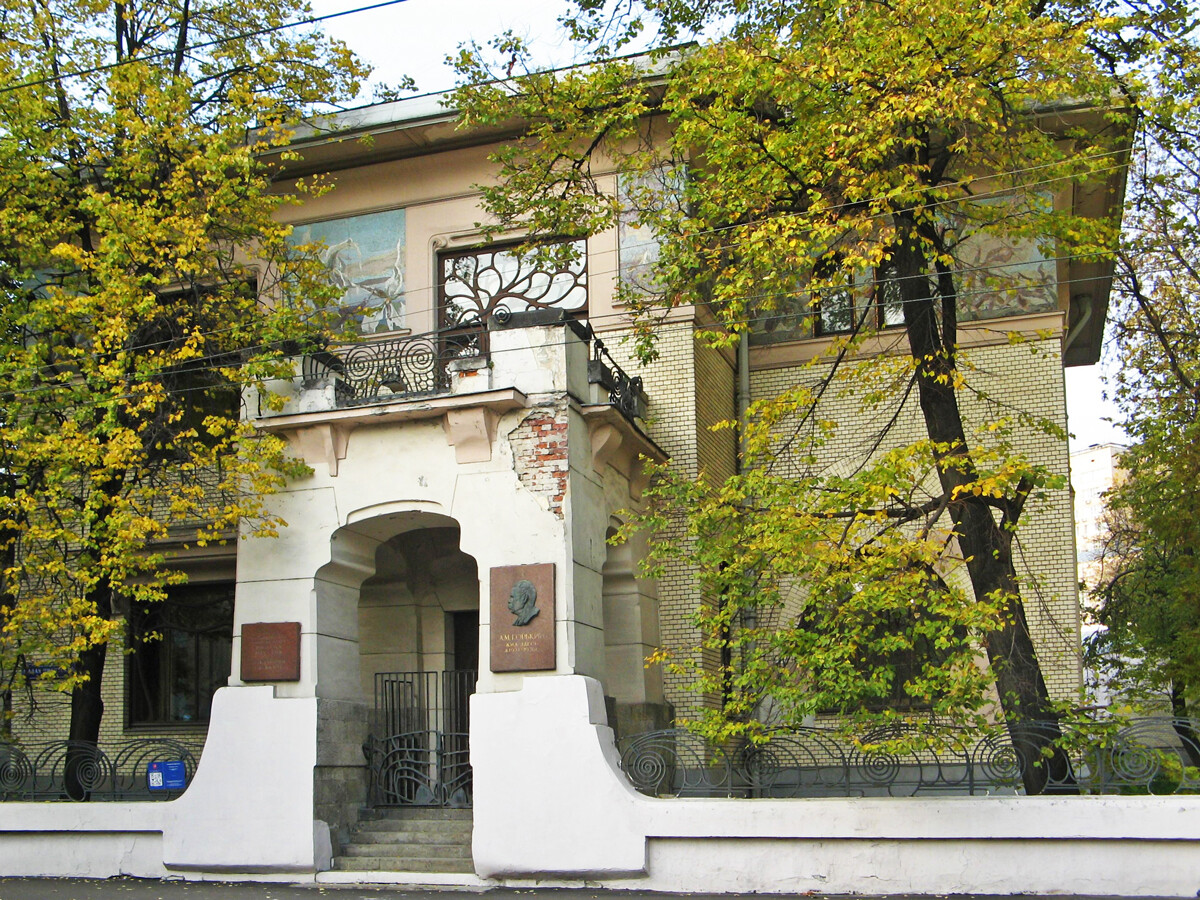
Yaroslavsky railway station (1902-1904)
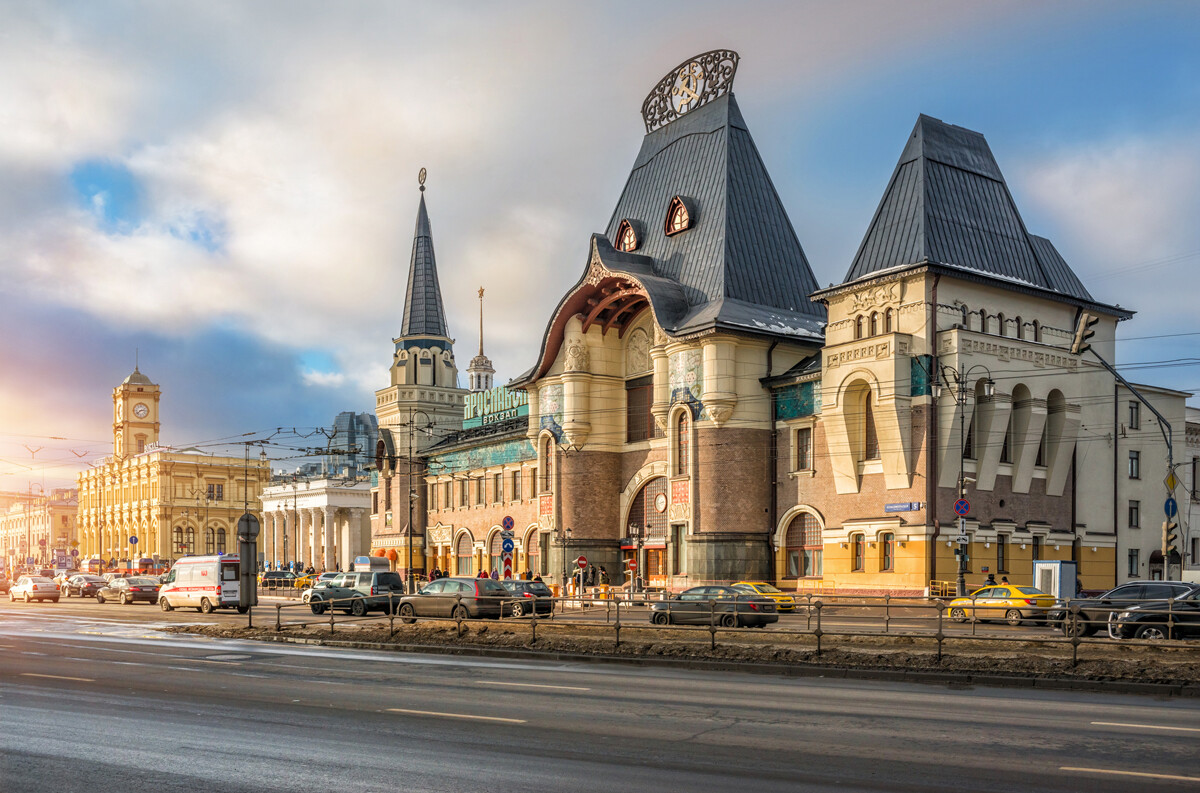
Hotel Metropol (1899-1905)
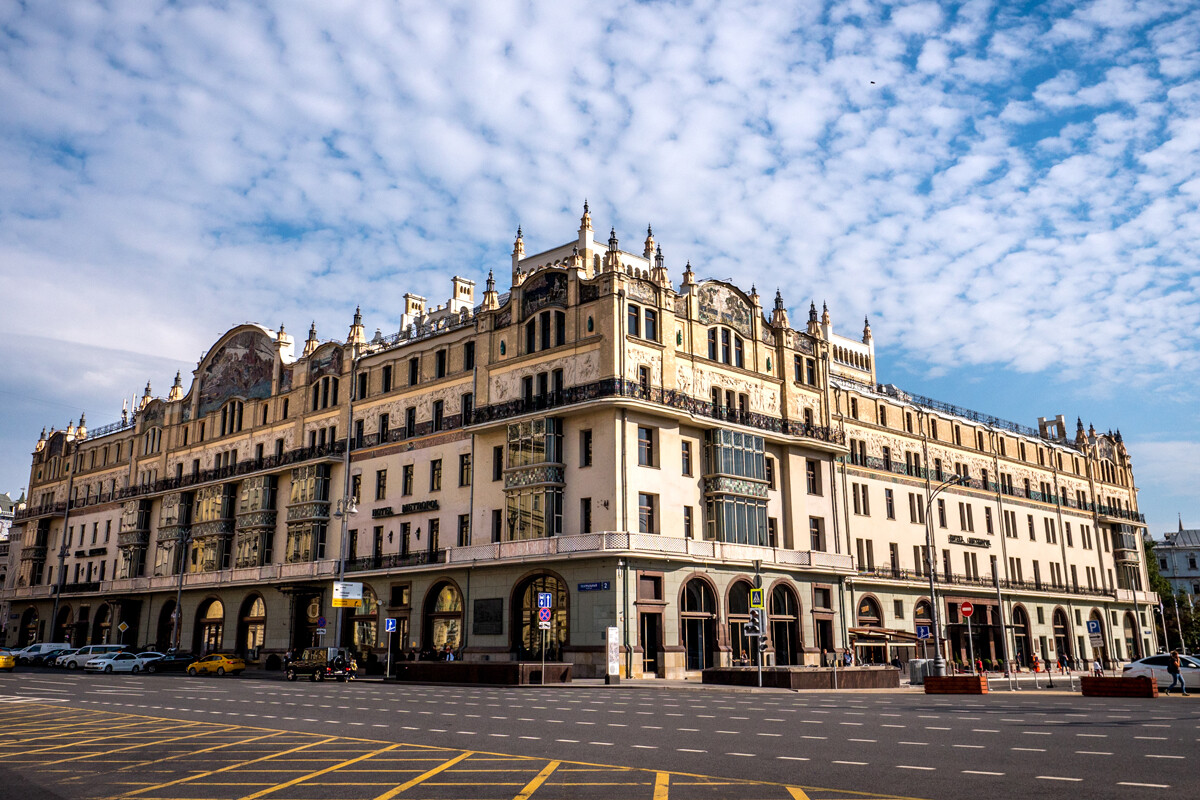
6) Avant-garde
In the early 1920s, following the destruction of the civil war, the Soviet authorities gave priority to the architecture of the Avant-garde when it came to rebuilding Moscow. The Soviet capital was adorned with experimental buildings that had minimal decoration; however, they had a well thought-out, practical construction with large windows. Constructivism became the leading trend of the Soviet Avant-garde in architecture; the leaders of this movement were architects Konstantin Melnikov, Alexey Shchusev, and the Vesnin brothers.
The headquarters of the Izvestiya newspaper (1925-1927)
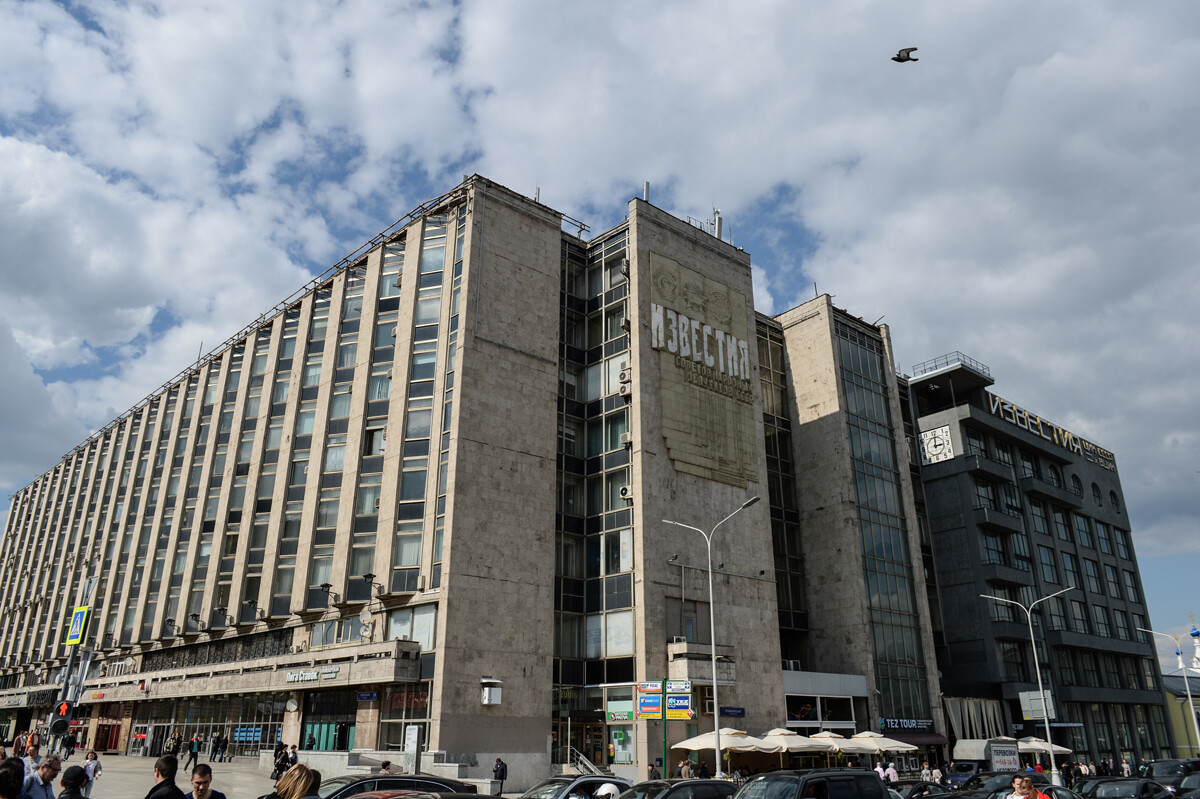
The main office of the People's Commissariat for Agriculture (1928-1933)
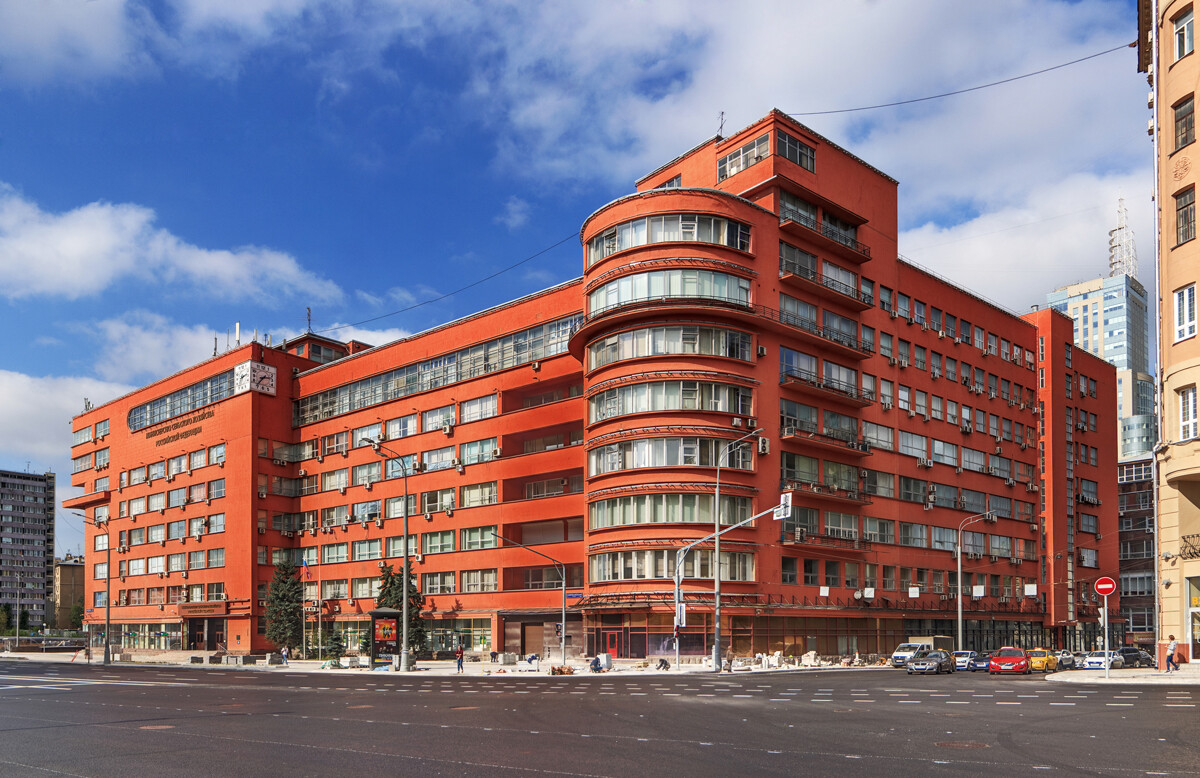
Bread Factory № 5 (1931)
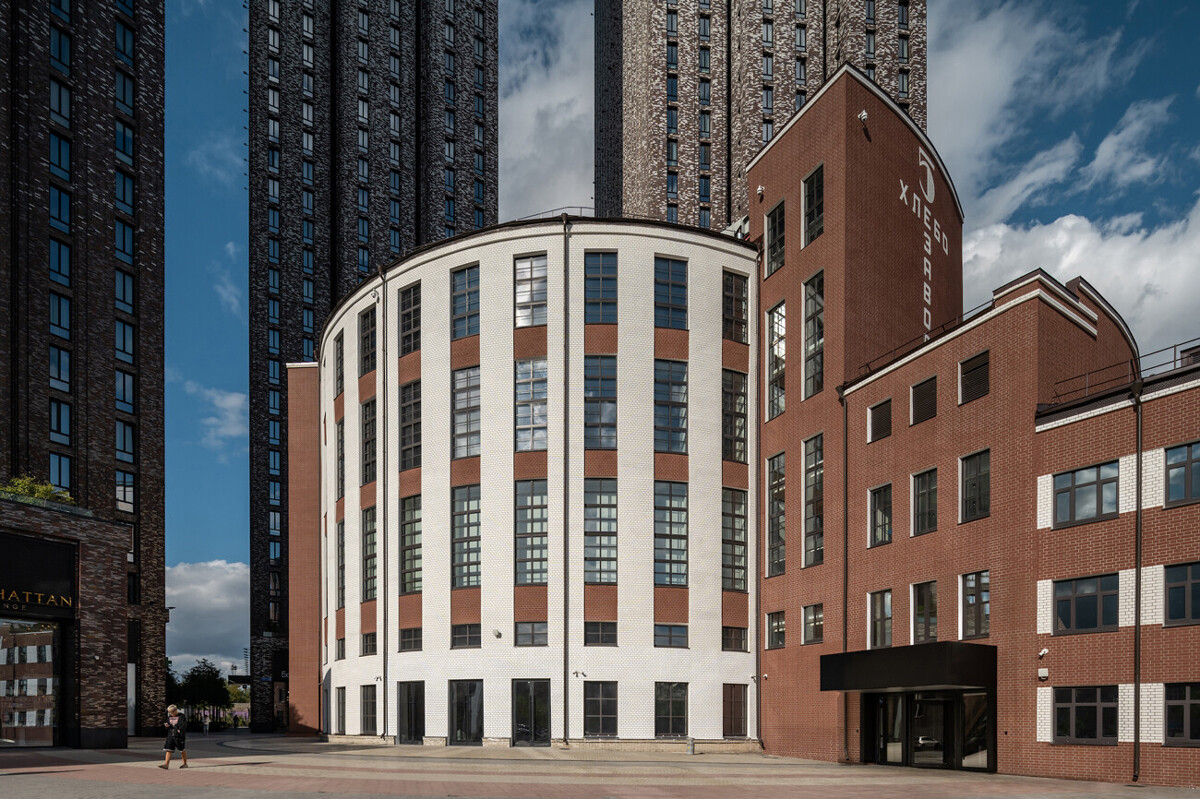
Melnikov’s House (1927-1929)
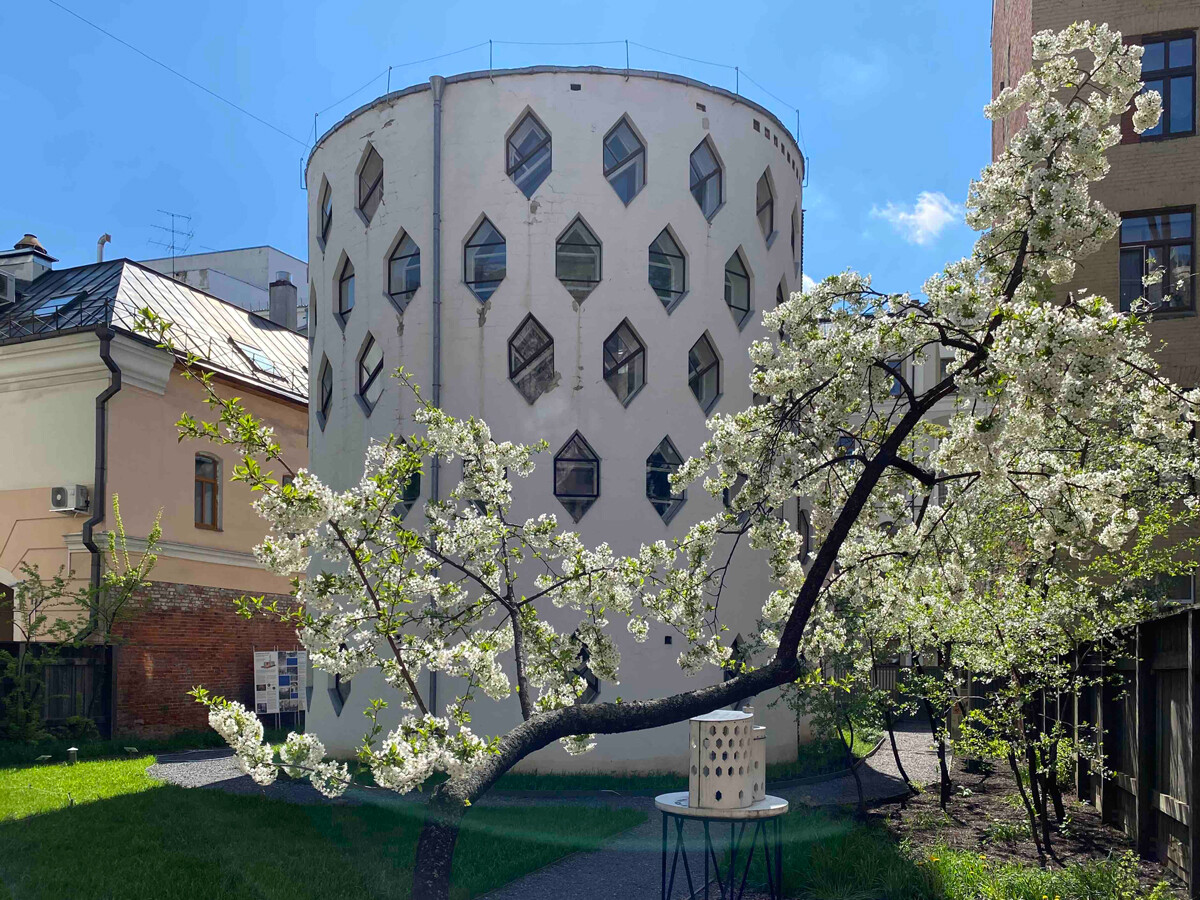
7) Soviet Art Deco (Post-Constructivism)
After the Constructivist experiments with shapes and spaces had run its course, Soviet architects found inspiration in the tenets of Classicism, which was more to Stalin’s tastes. This post-Constructivism became the basis for the Soviet interpretation of the Art Deco style in which, for example, the New York City skyscrapers were built in the 1920s. It’s marked by monumentalism, columns, decorations in the form of coats of arms, bas-reliefs and sculptures, as well as a strictness of form and combination of concrete and metal.
The Russian State Library (1928-1958)
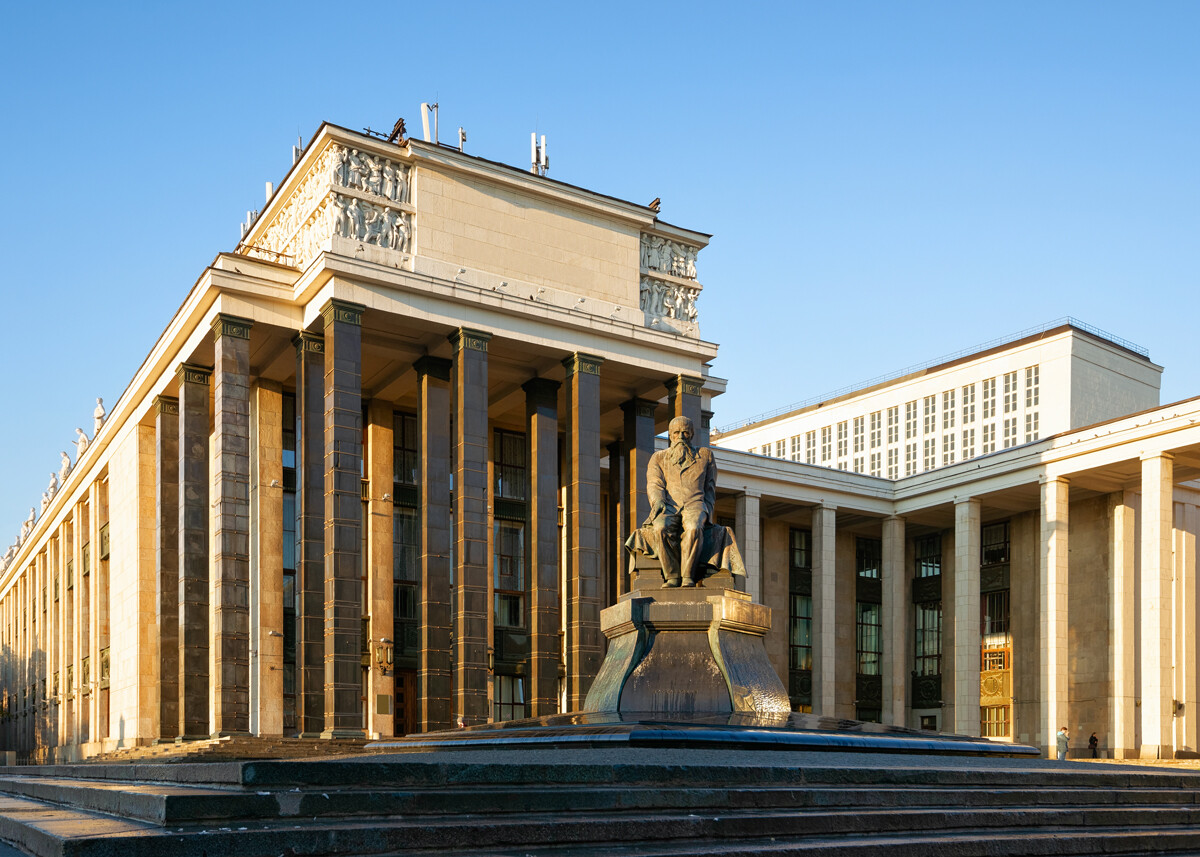
The Ministry of Defense on Kolymazhny Lane (1934-1938)
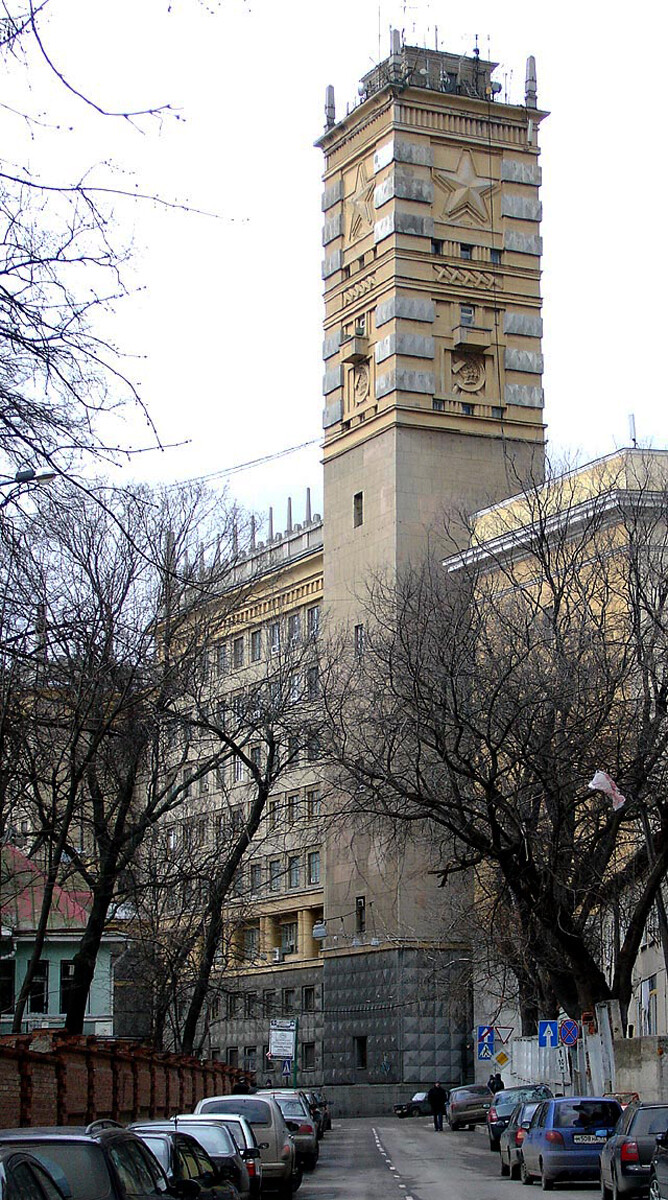
The State Duma (1932-1935)
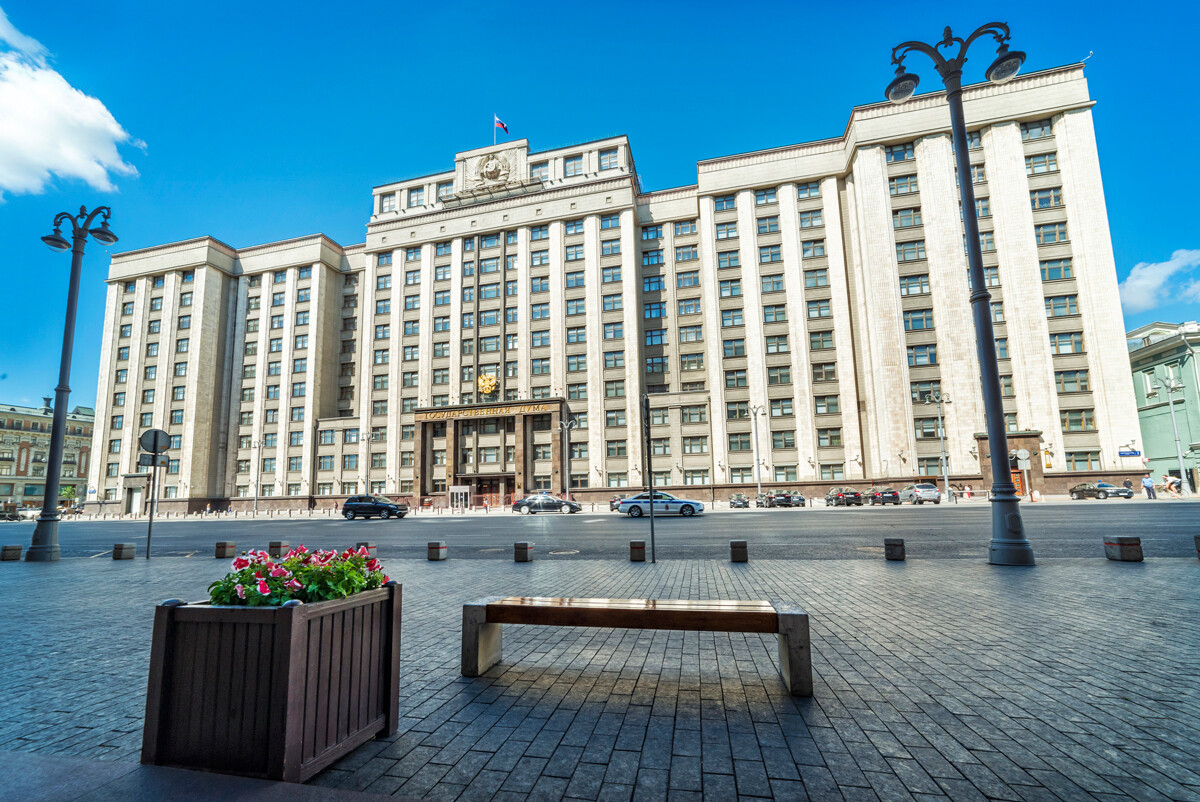
8) Stalinist Empire style
As the 1930s progressed, Soviet architecture transformed into a style that art historians call the Stalinist Empire style. It was especially noticeable in the post World War 2 era. This was no longer Classicism but, rather, the pompous and triumphant style of a victorious empire. This architectural style is characterized by its columns, porticos, perfect symmetry, curls, stucco, sculptures, oriel windows and decorative cornices, as well as five-pointed stars and the Soviet coats of arms. Both residential and grand public buildings, such as the Moscow river terminal, were built in such a manner. Stalin’s high rises, with their spires reaching skyward, became the apotheosis of this style. Read more about the Stalinist Empire style here.
Moscow State University (1949-1953)
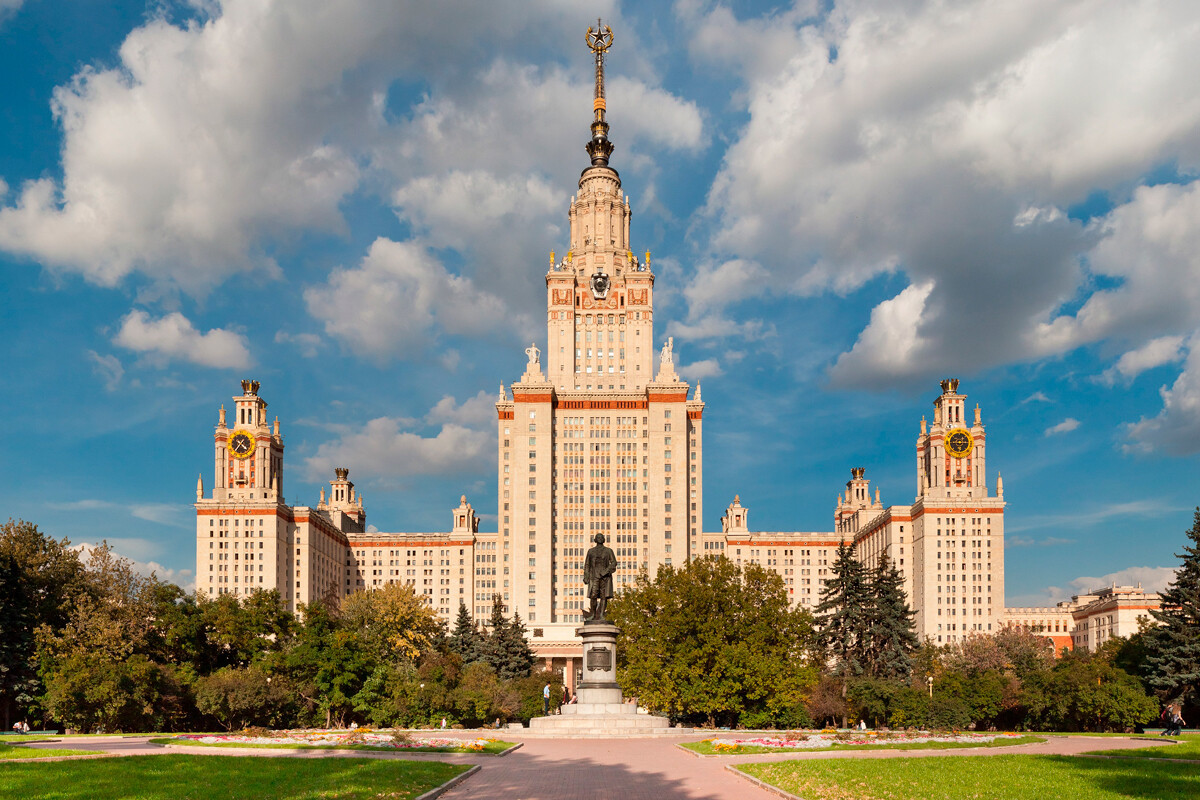
Central pavilion of VDNKh (1951-1954)
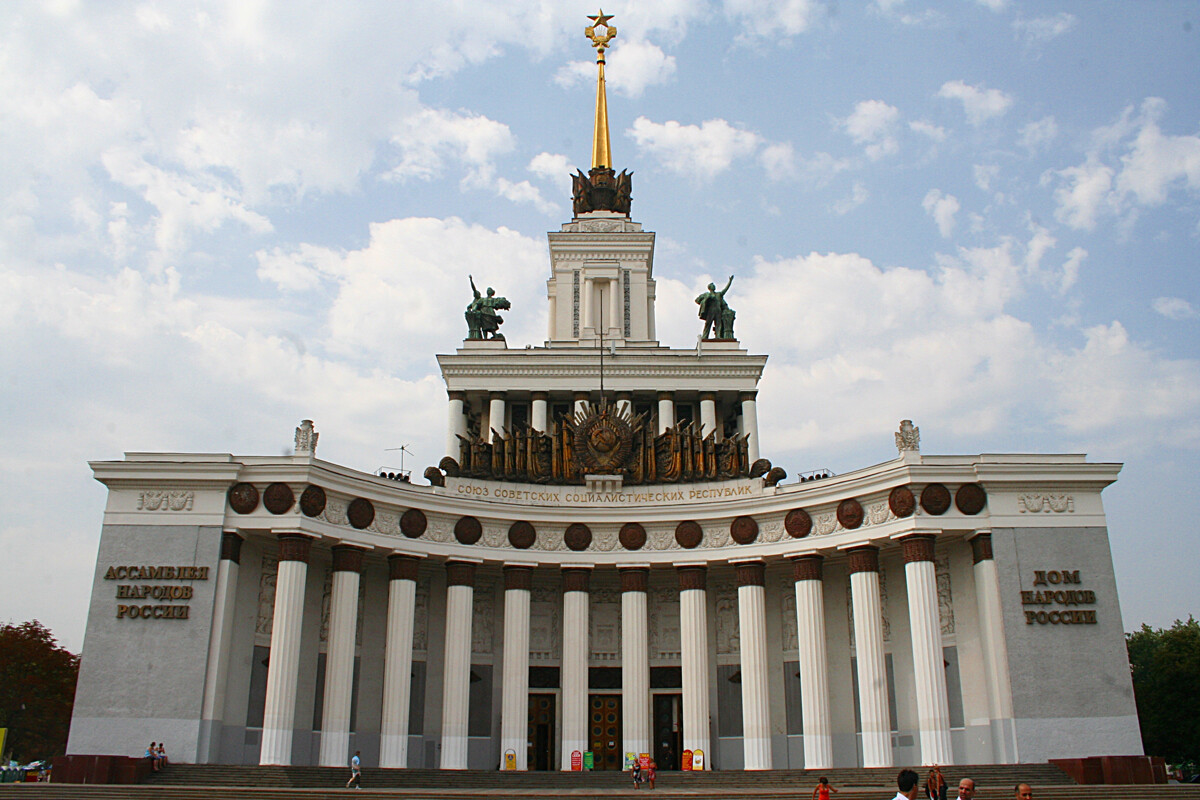
The North River Terminal (1933-1937)
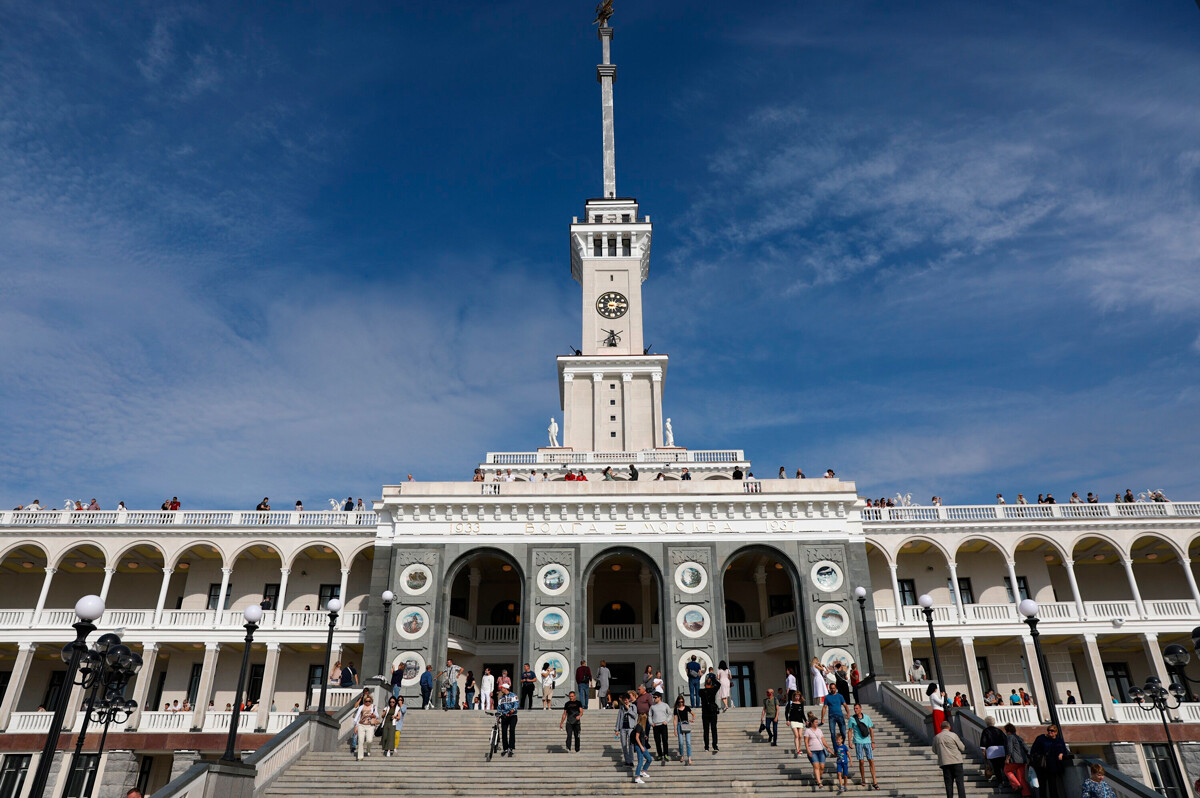
9) Brutalist style
After Stalin, an ideological struggle began against architectural excess, and for almost two decades standardized residential khrushchyovka buildings became commonplace in the country. In the 1970s, however, when the country had grown richer and had more opportunities, the authorities wanted once again to display the might of the Soviet nation. As such, monolithic buildings composed of massive concrete forms without decoration appeared; they impressed with their colossal size and unconventional shapes. For example, there was the ‘Lying Skyscraper’, and a ‘ship house’, which was built for nuclear industry workers (the main idea was that it was supposed to resemble a nuclear reactor). Also, there was the ominous building of the Moscow oncology center. Even the Ostankino TV tower, looking like a space rocket, stands on a massive concrete foundation and adheres to this style.
N.N. Blokhin’s Oncology Center (1972-1976)
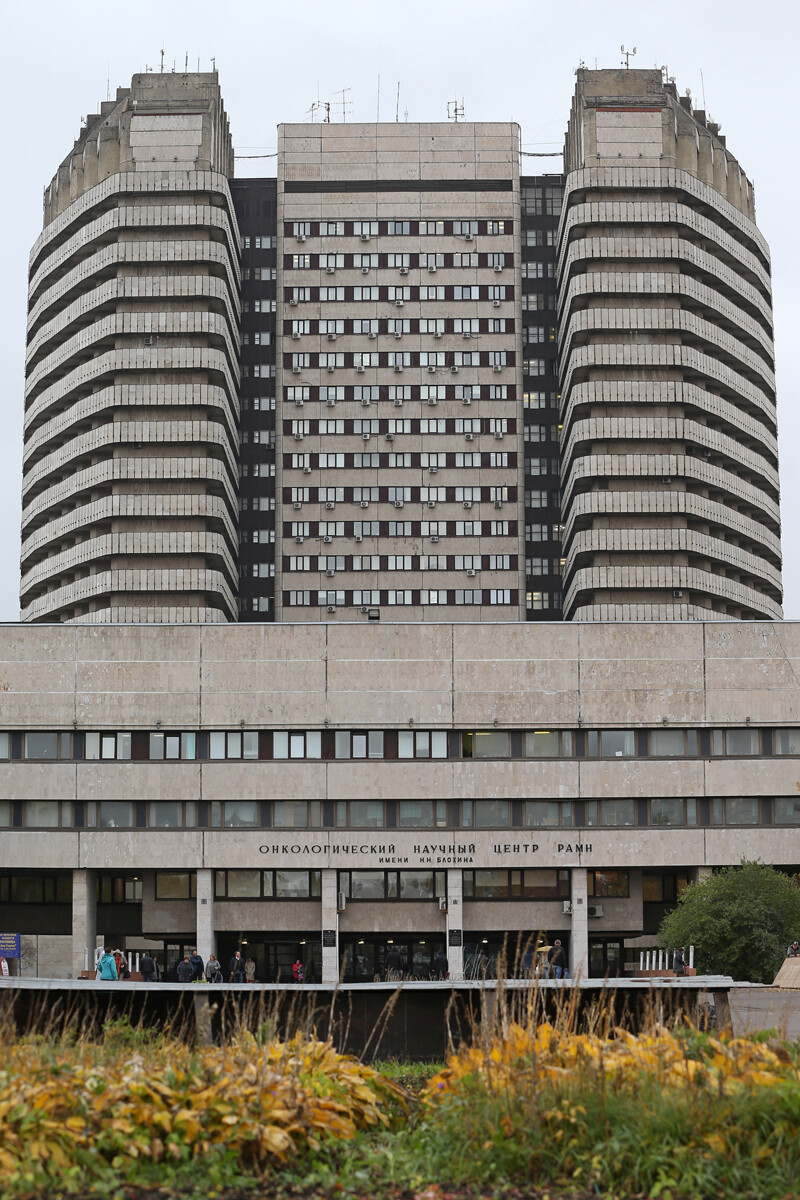
Aviators’ House (1973-1978)
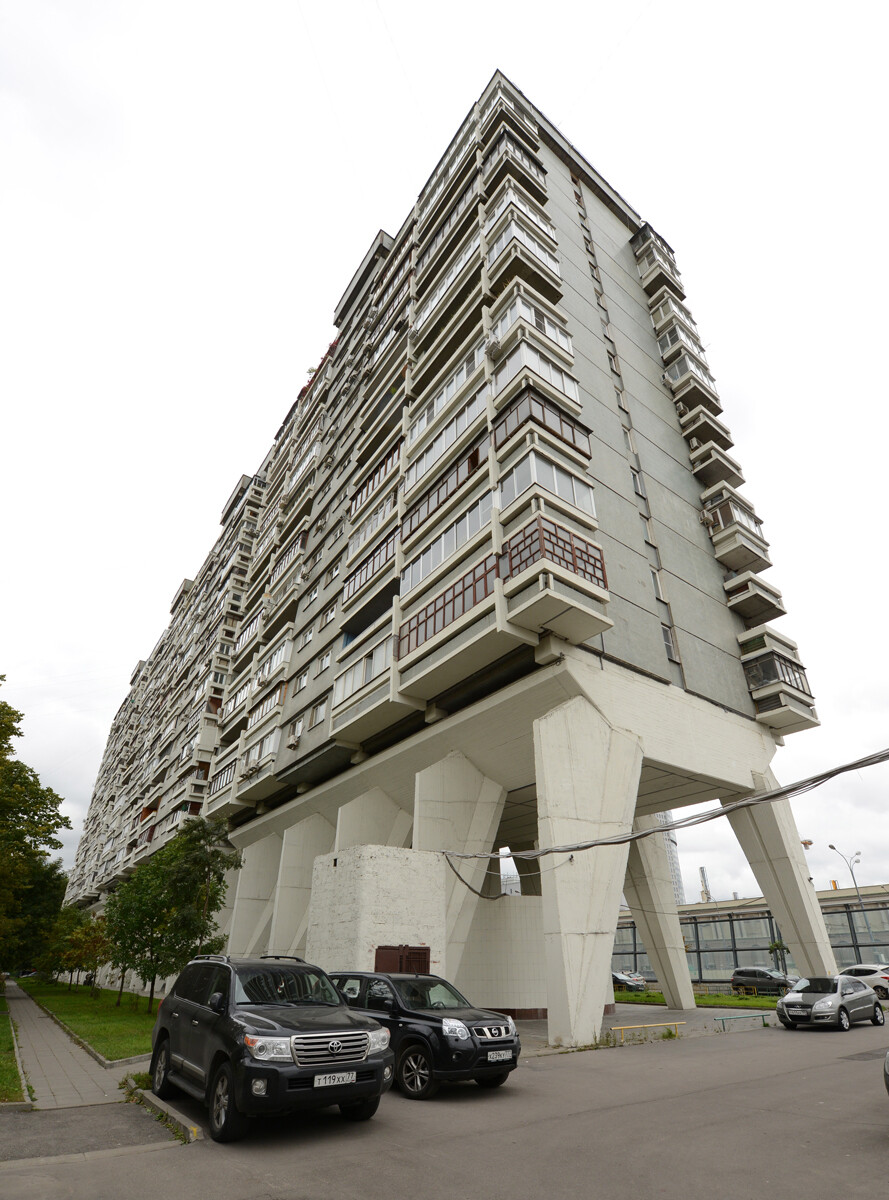
Ship House (1972-1986)
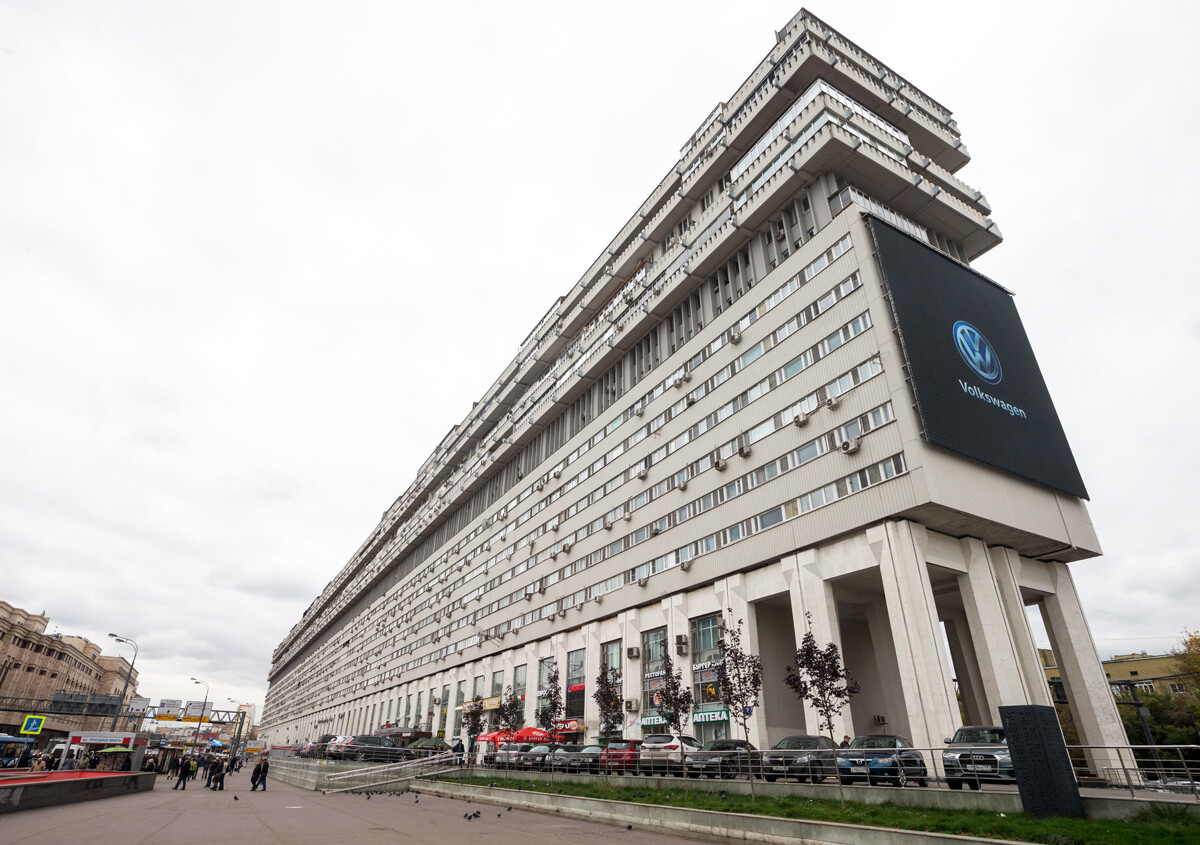
The Ostankino TV tower (1960-1967)
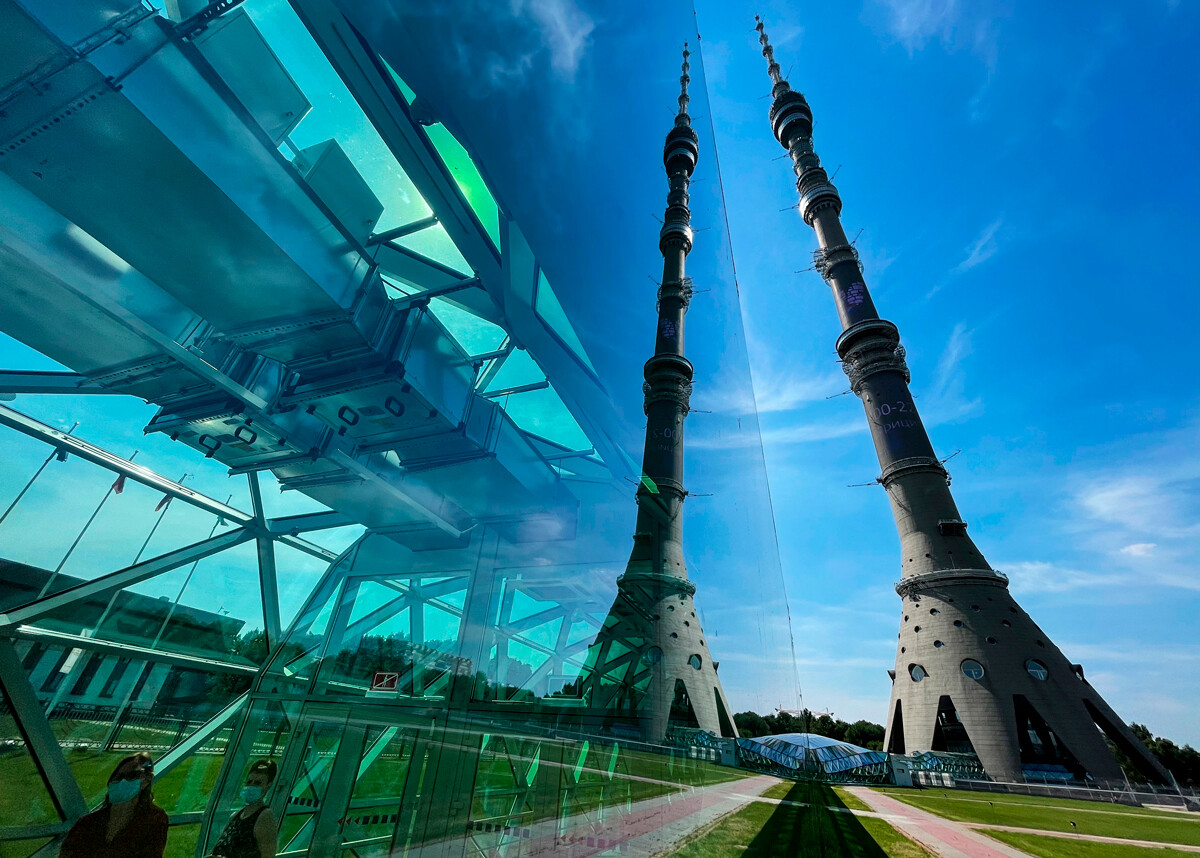
10) Luzhkov style (Postmodernism)
The 1990s were challenging times for the country – they’re called ‘wild’ because when the USSR collapsed a new era of market economy sprung up. This was the era of the ‘New Russians’ and organized crime. With that, however, there was also a lot more freedom. Former Soviet people now discovered everything Western, and they embarked on a journey to find their own sense of style and taste. This was a period of often disastrous architectural experiments. Under Mayor Yuri Luzhkov, who ran Moscow with an iron fist, there appeared many buildings that are today included in lists of the Most Tasteless. The architectural experiments of the 1990s were attempt to create a new style using glass, metal constructions, and hi-tech. Nevertheless, they drew inspiration from the architectural styles of the past – Art Nouveau, Art Deco, and other eclectic styles.
Nautilus Mall (1999)
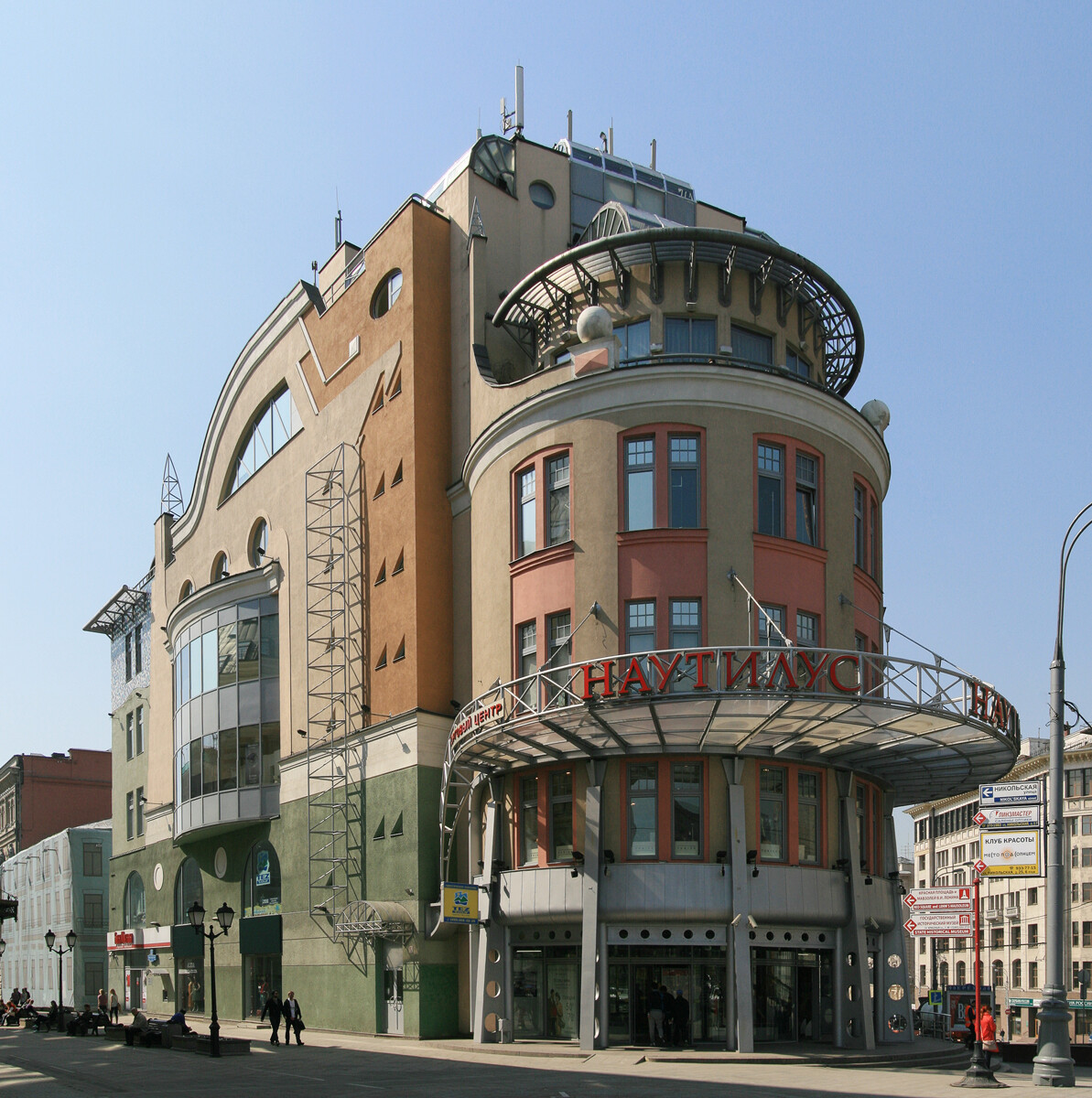
Egg House (2002)
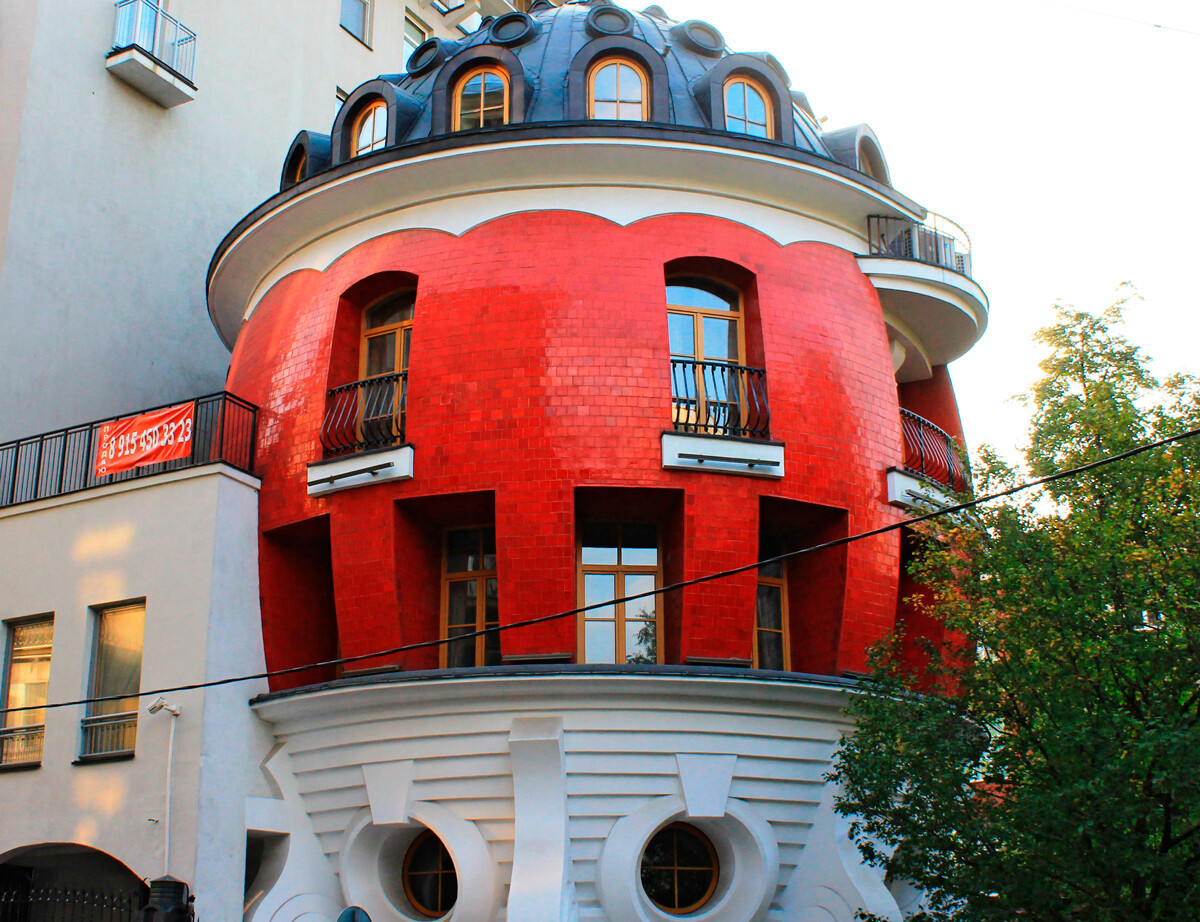
The House of Music (2002)
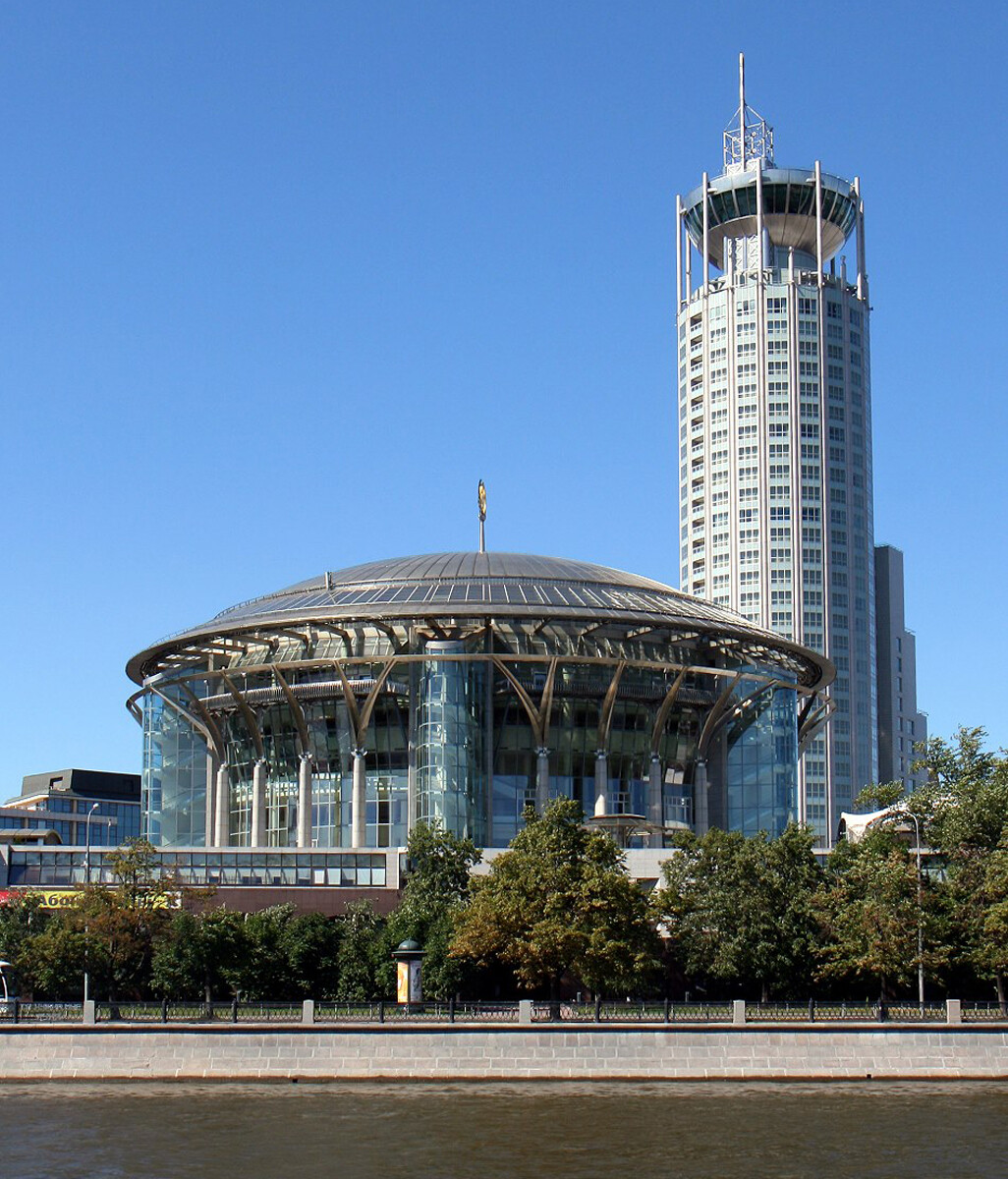
Et cetera Theater (2005)
